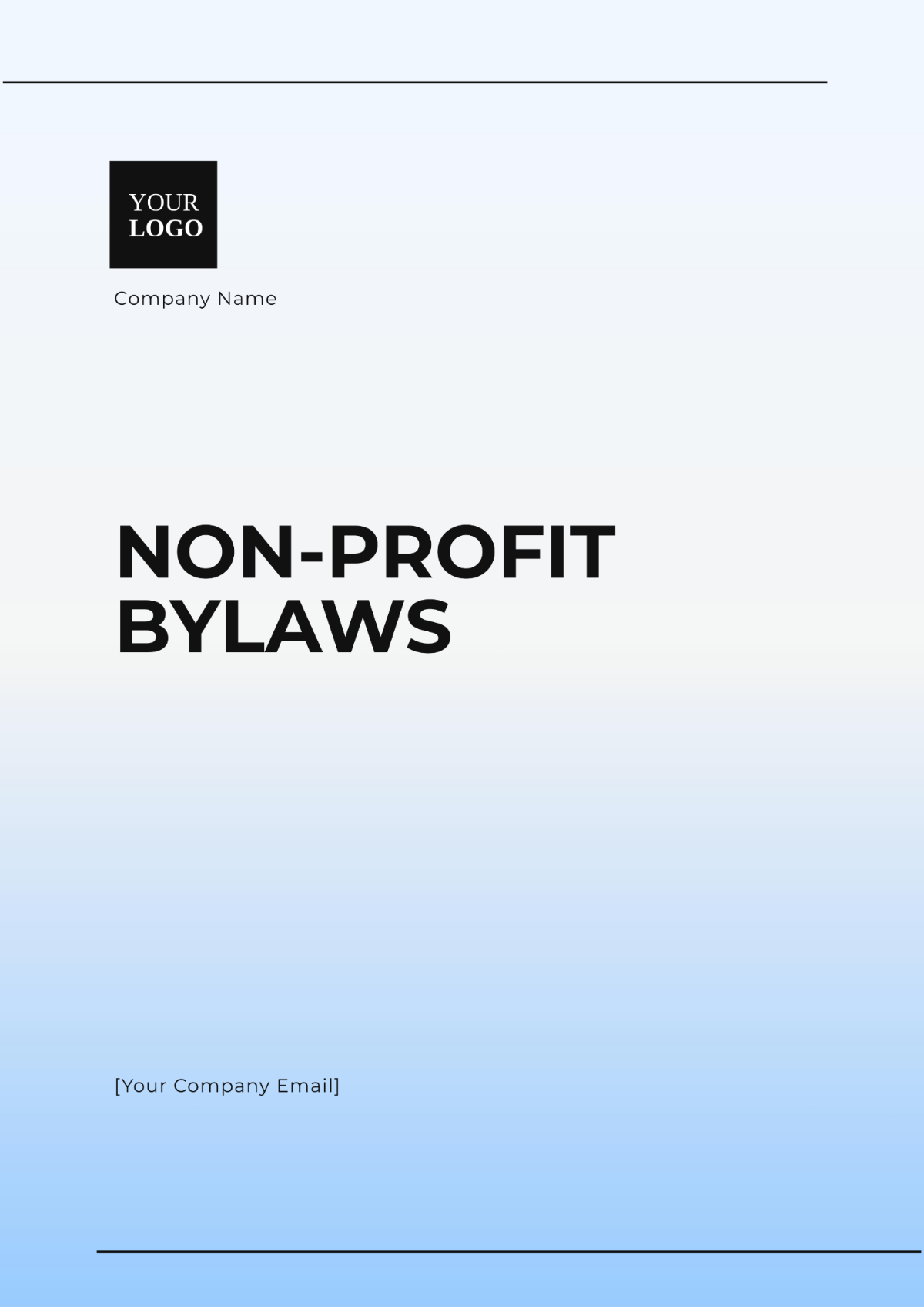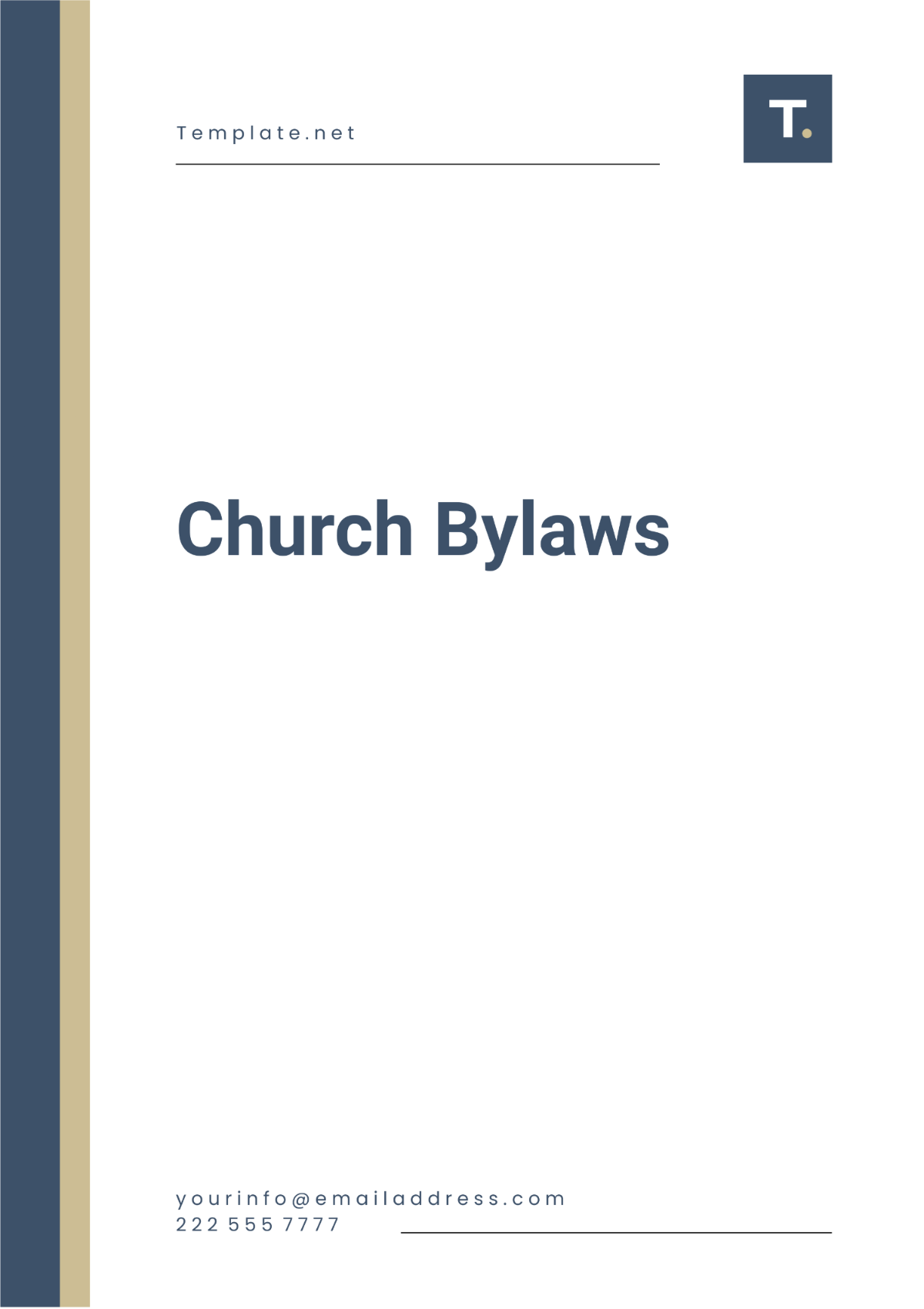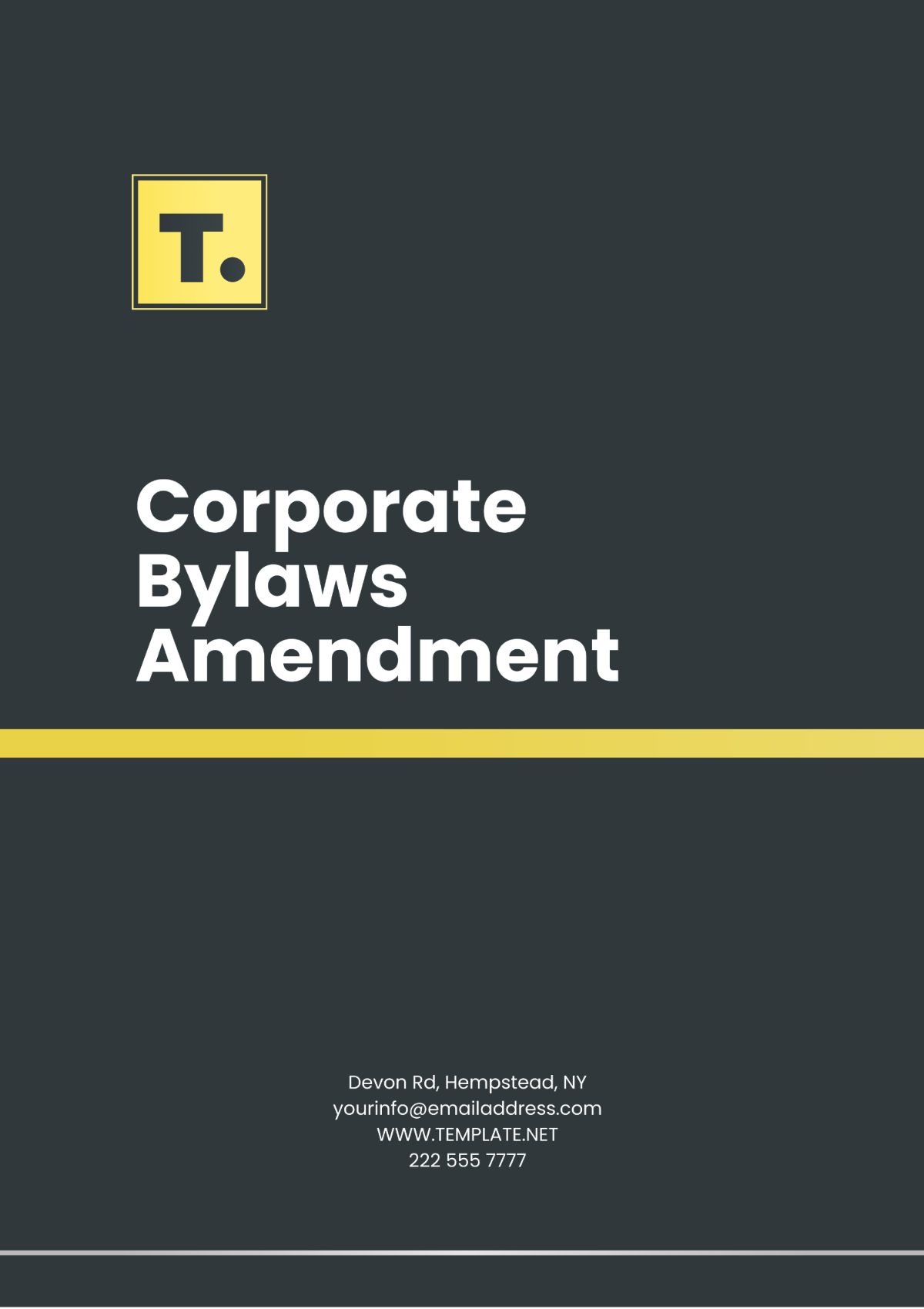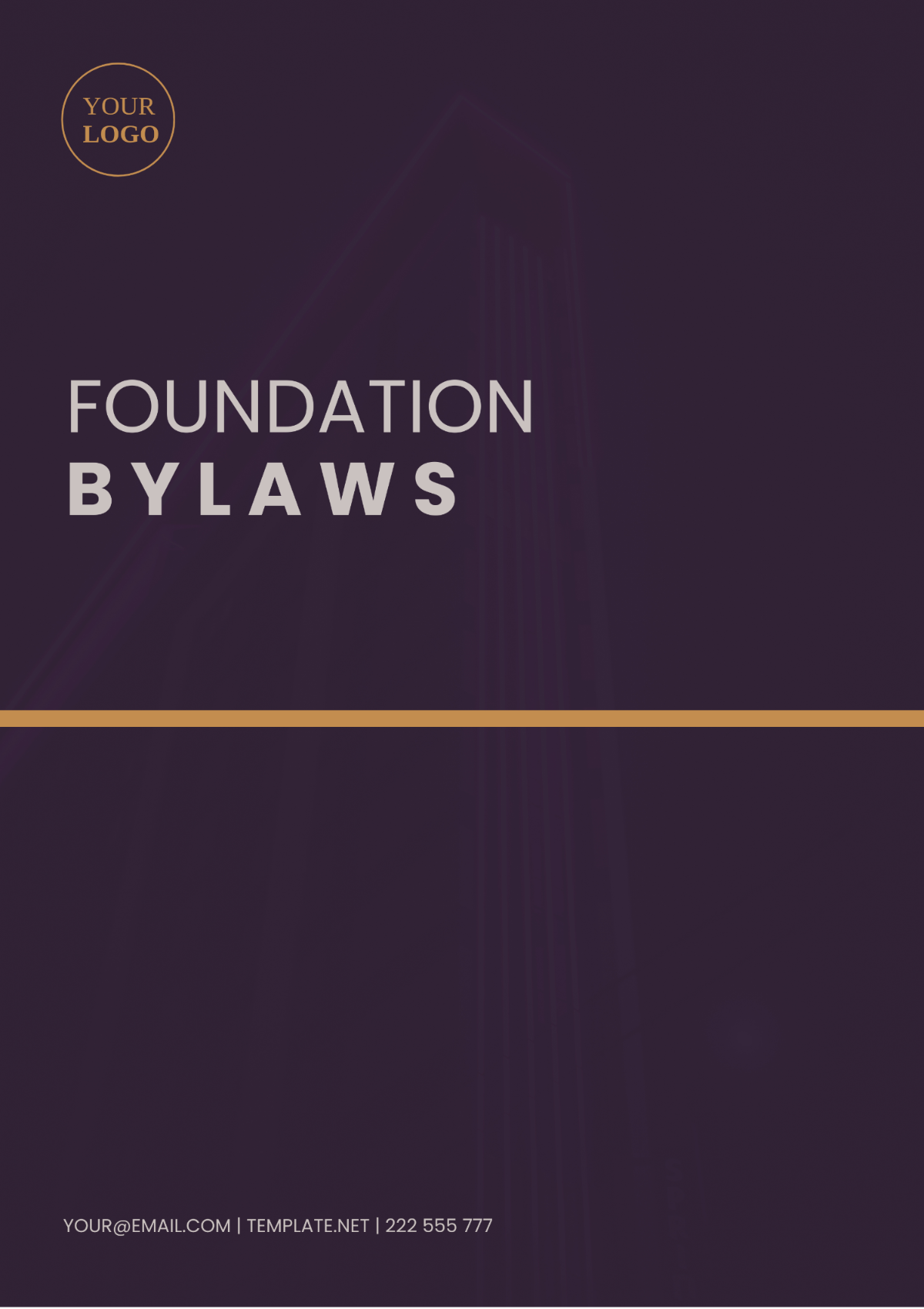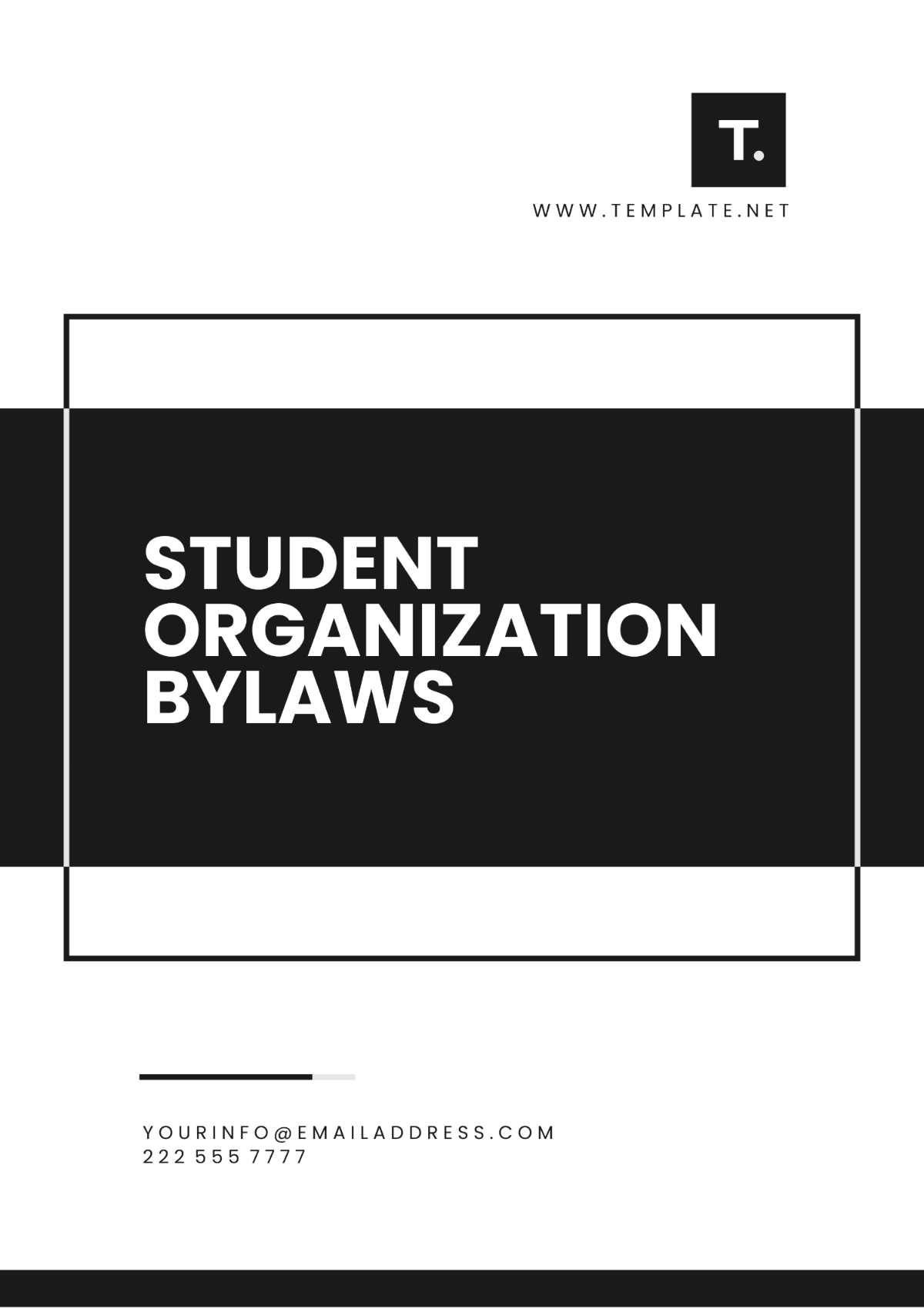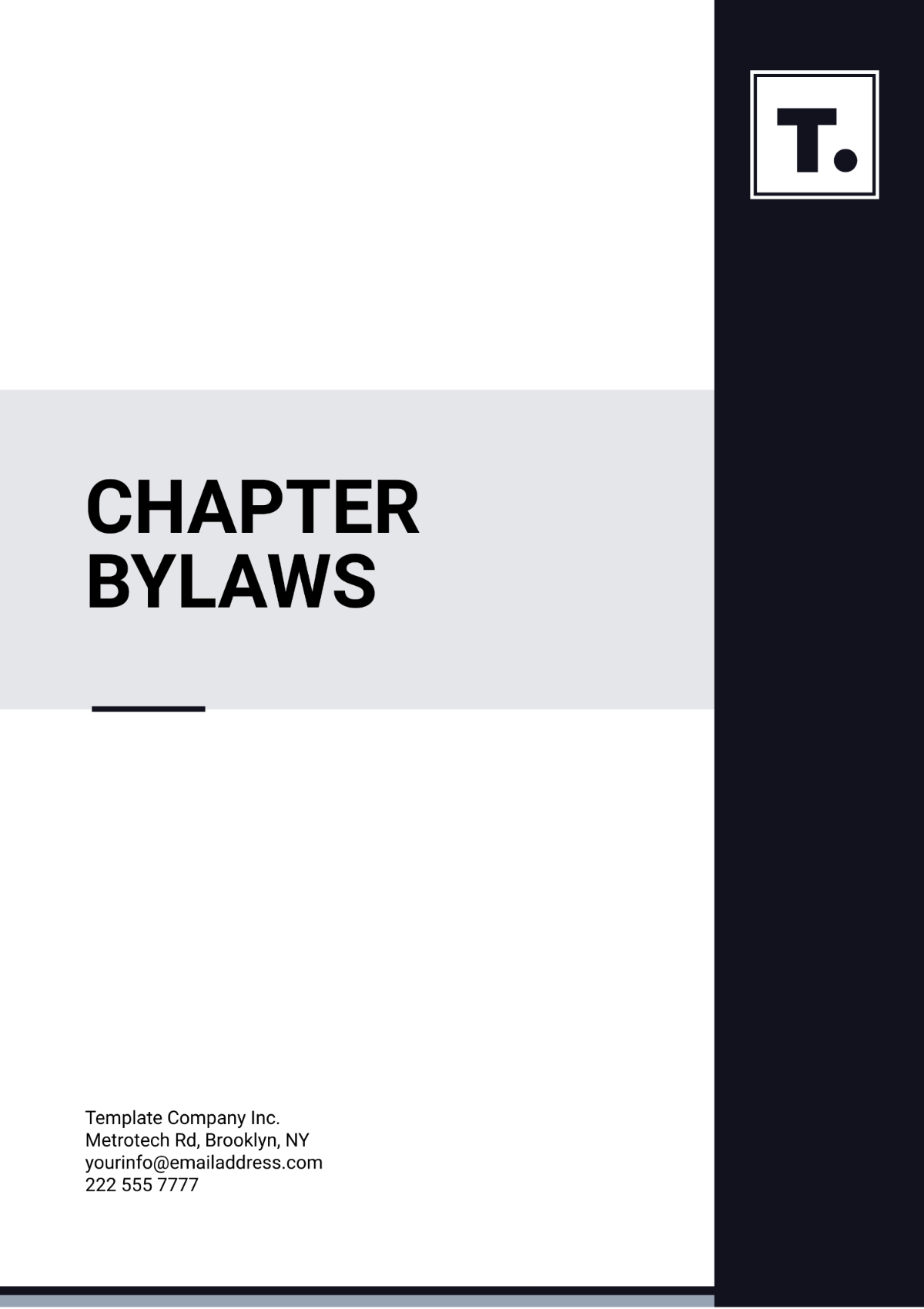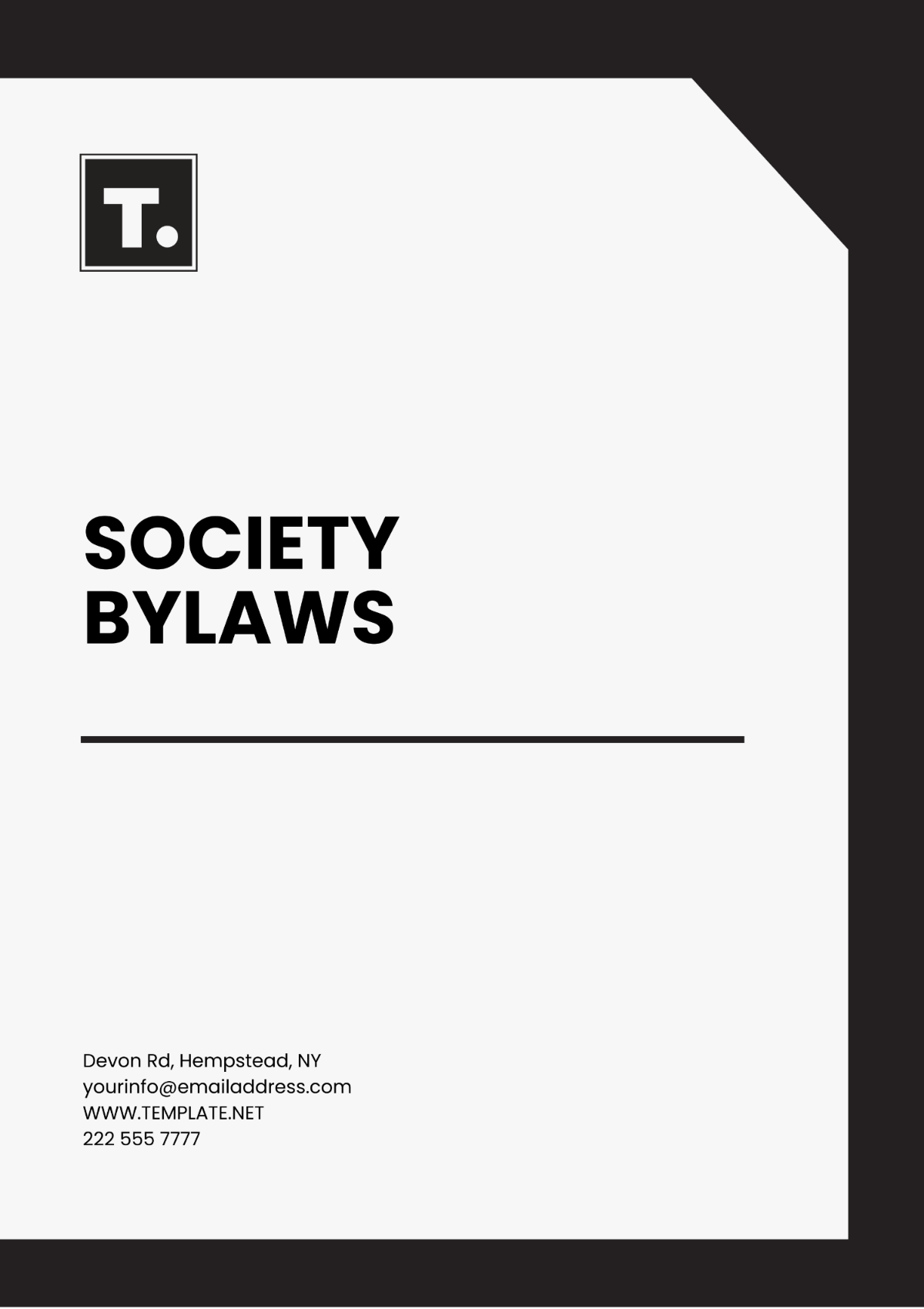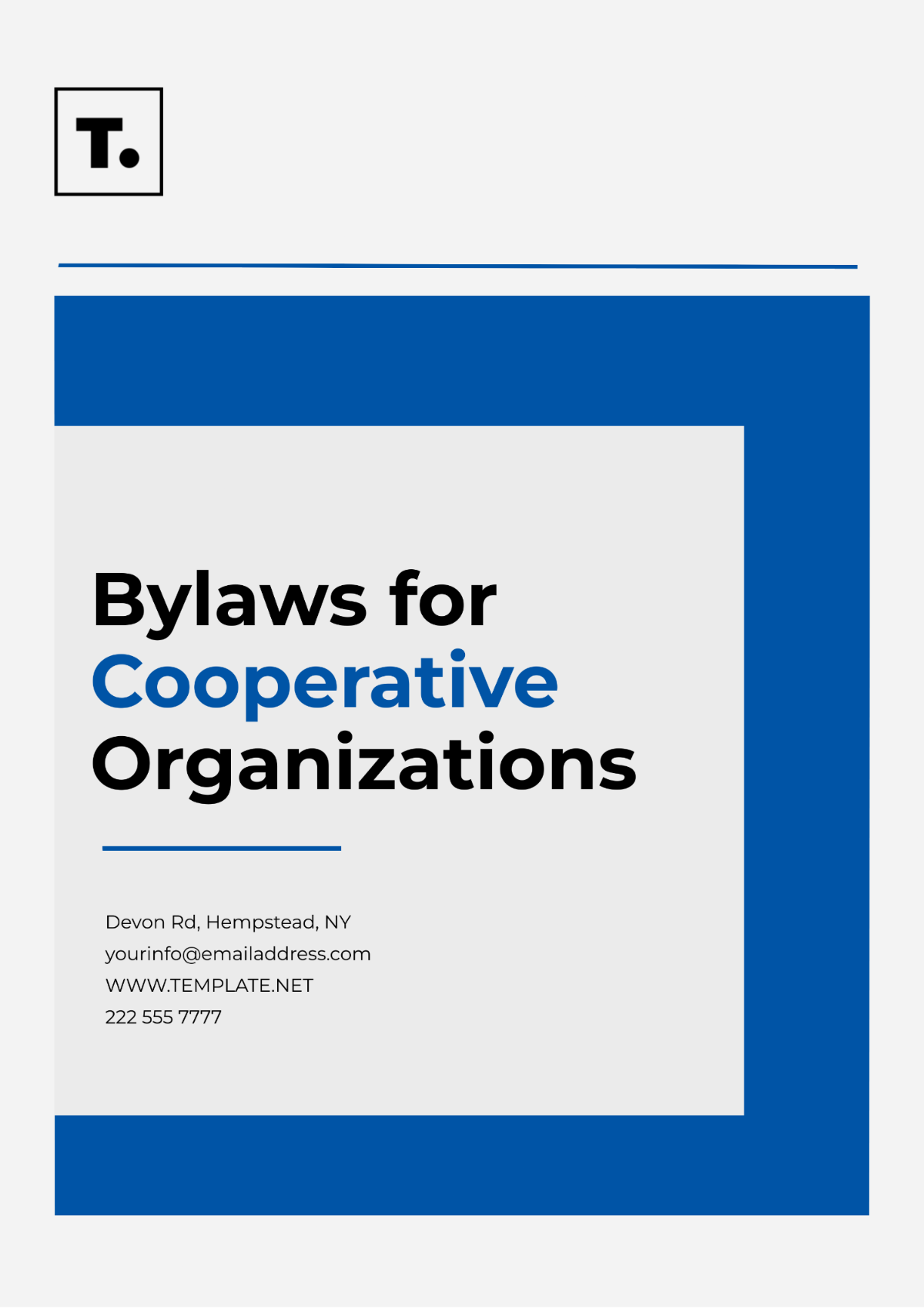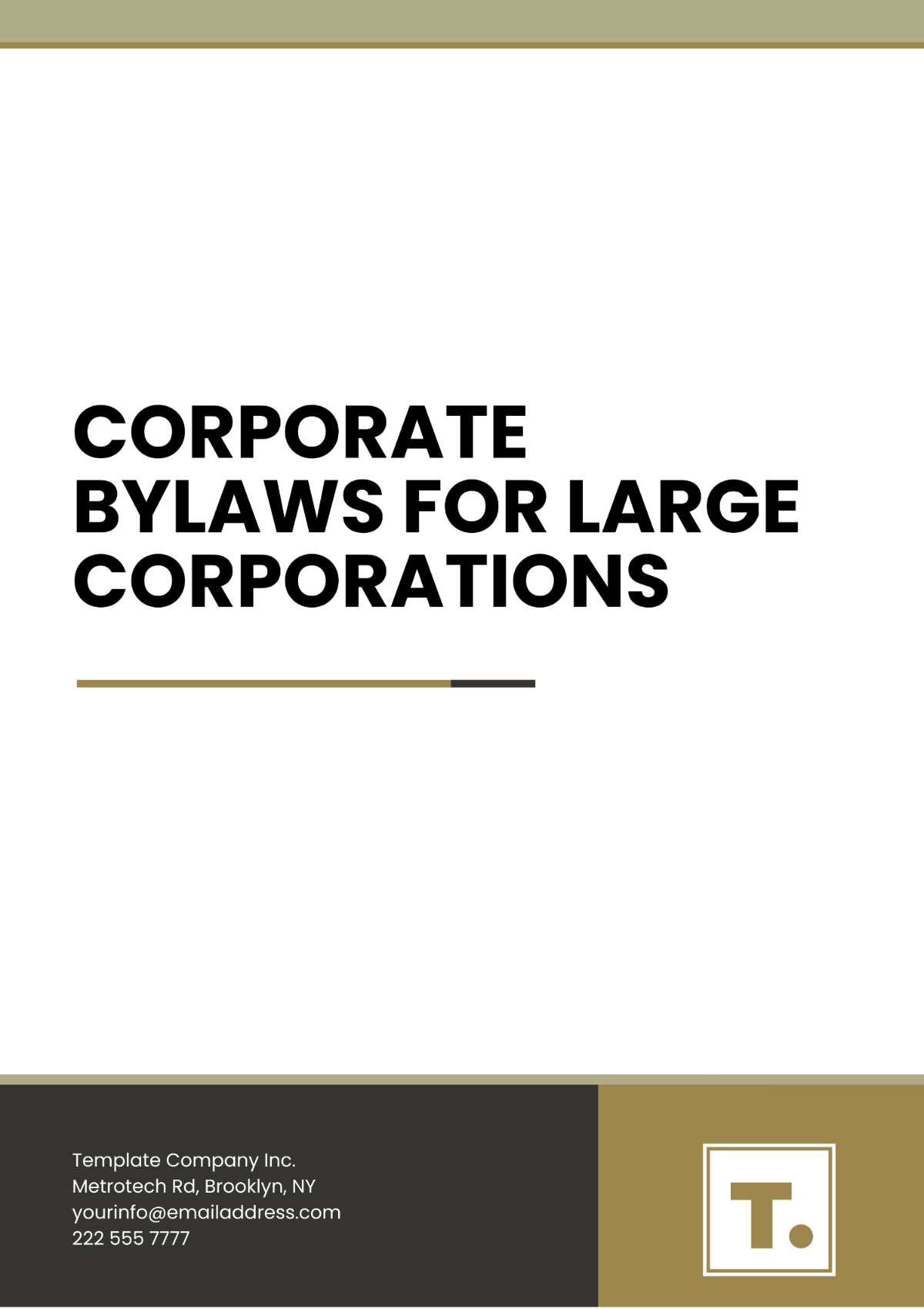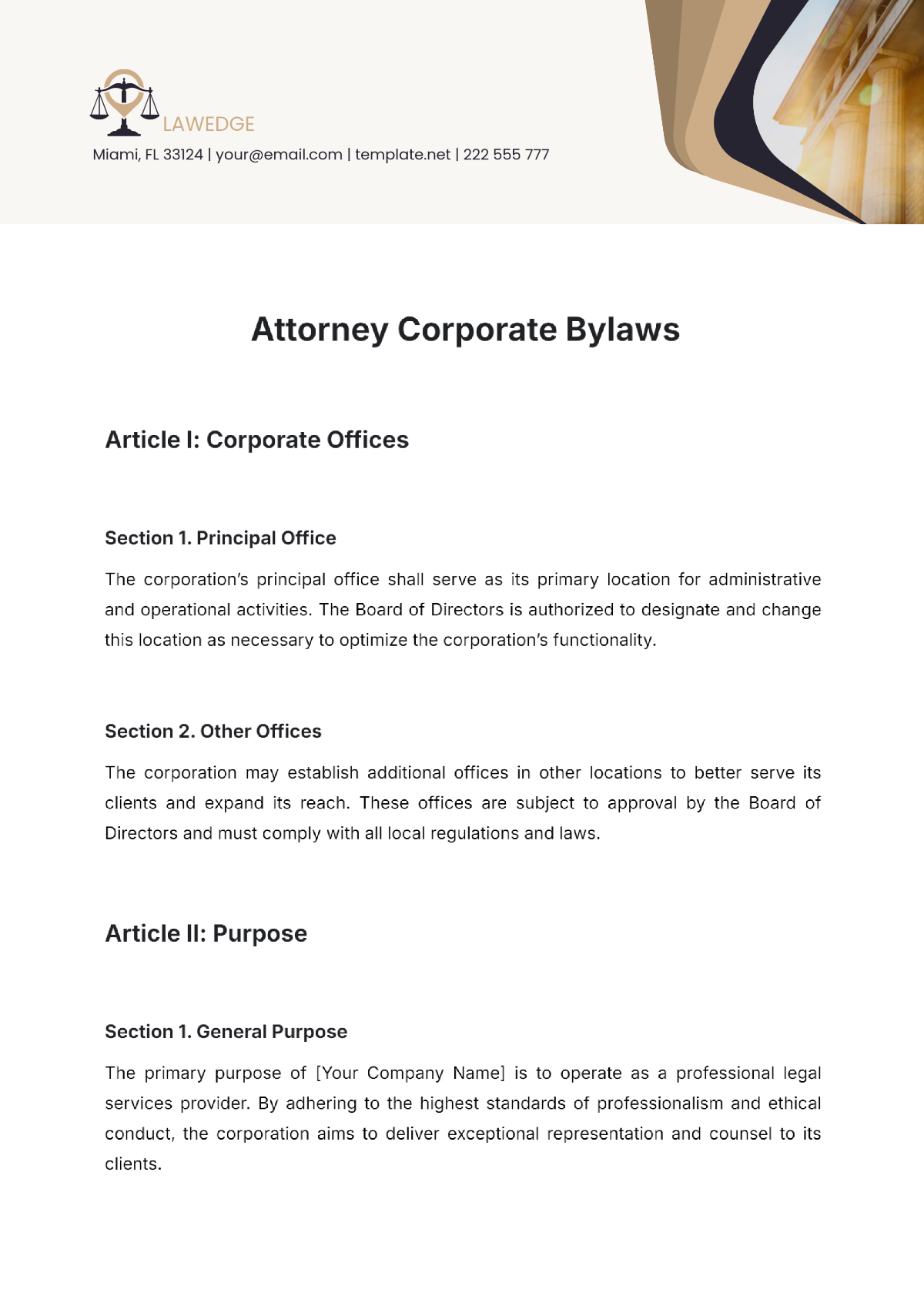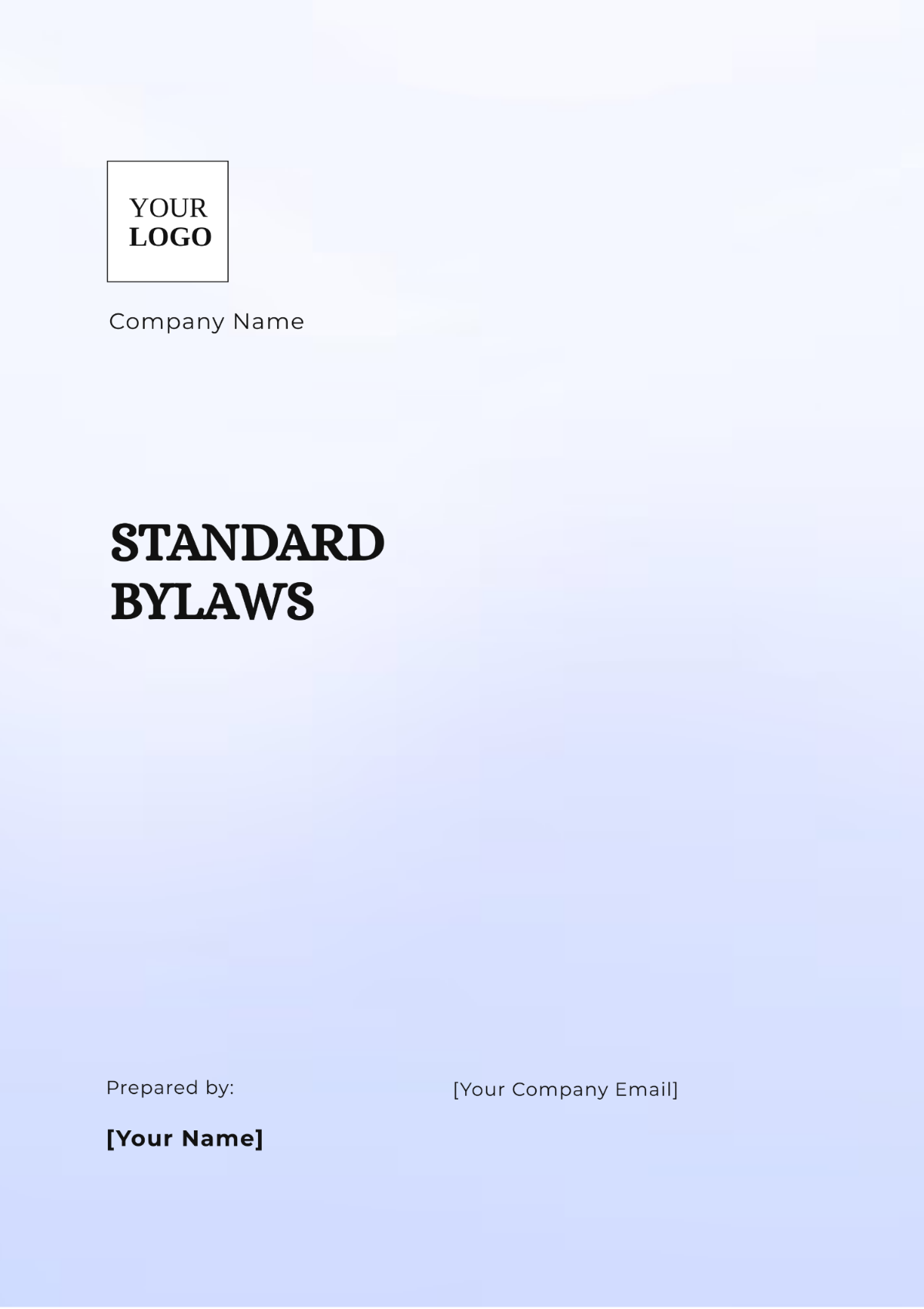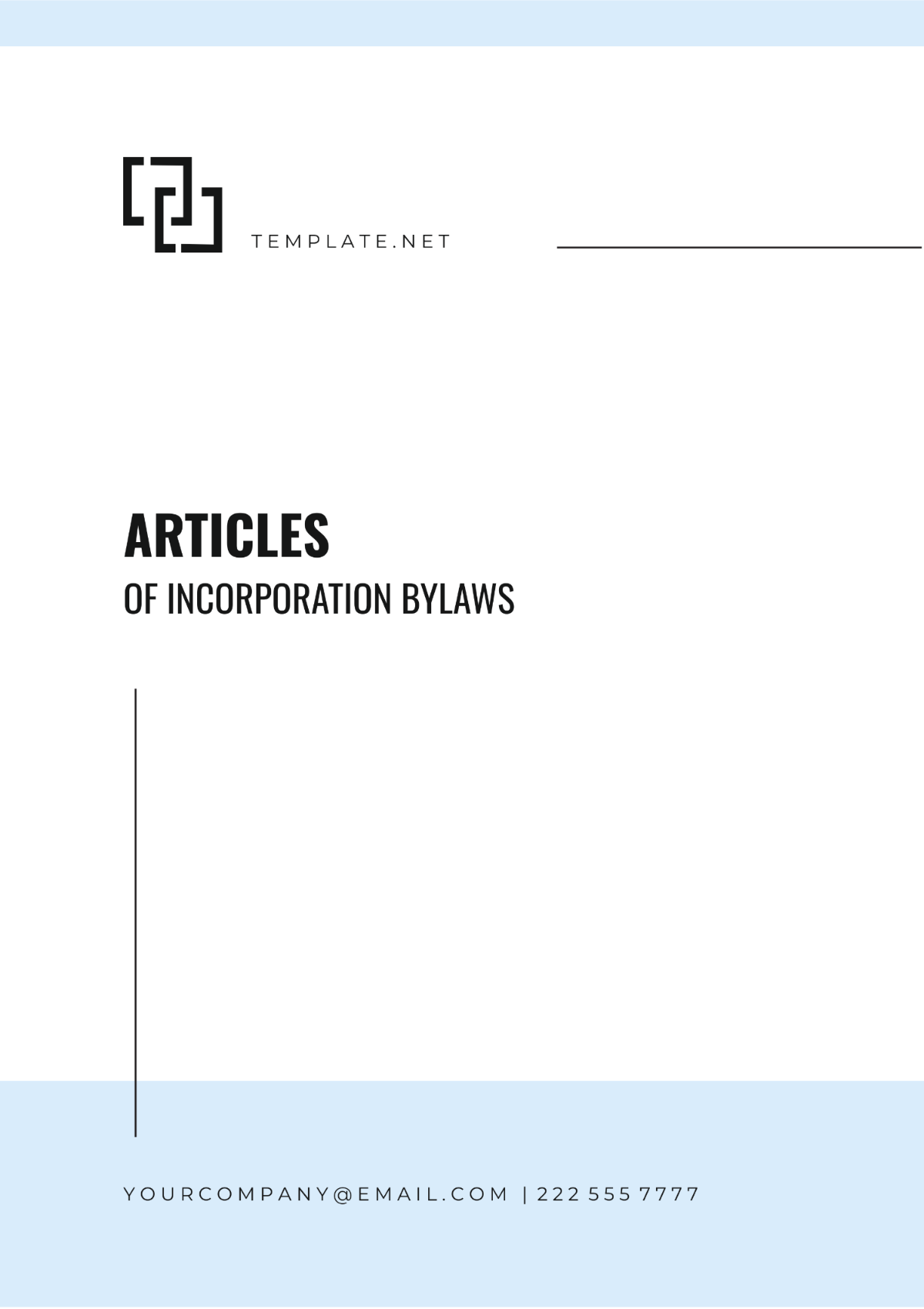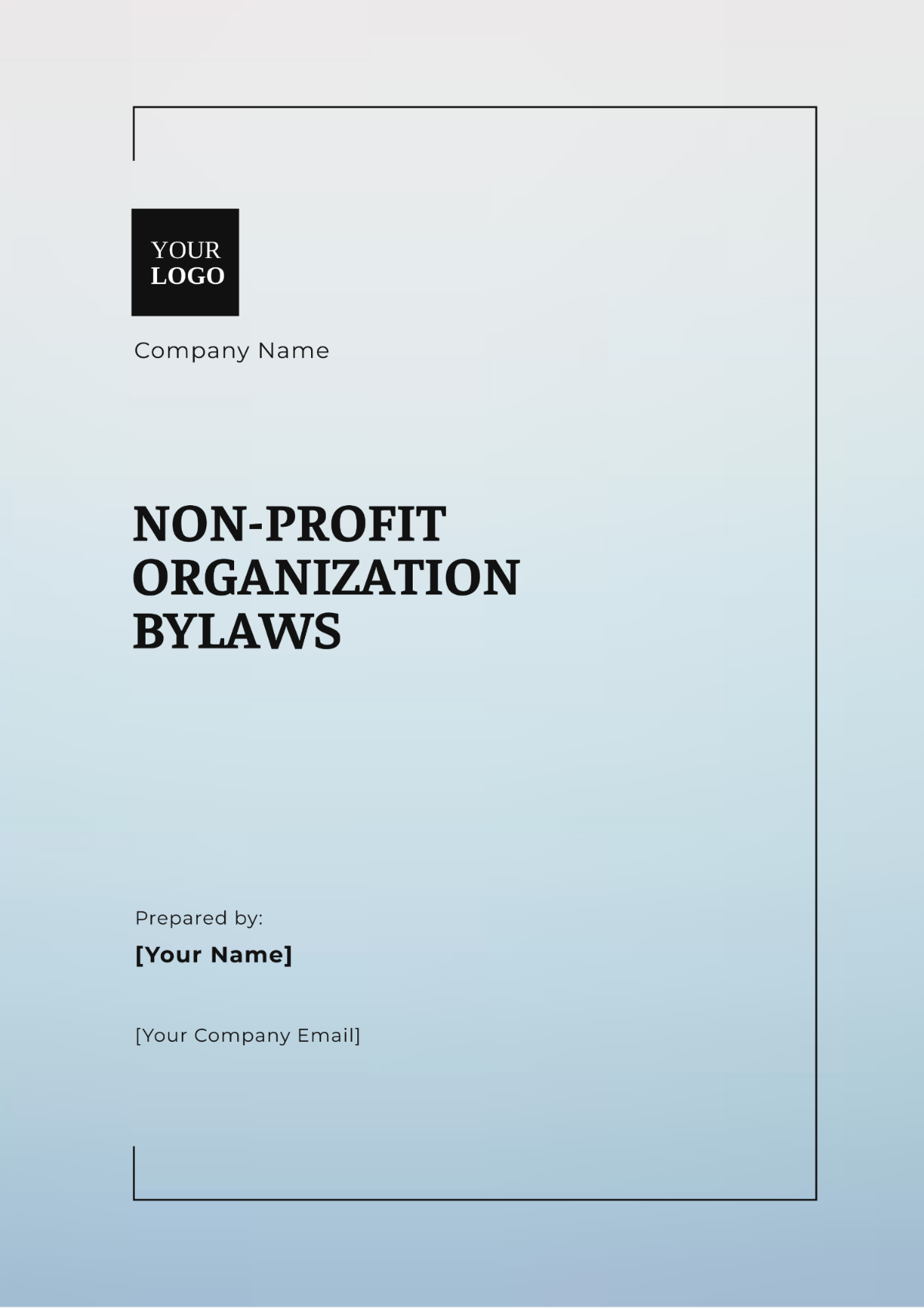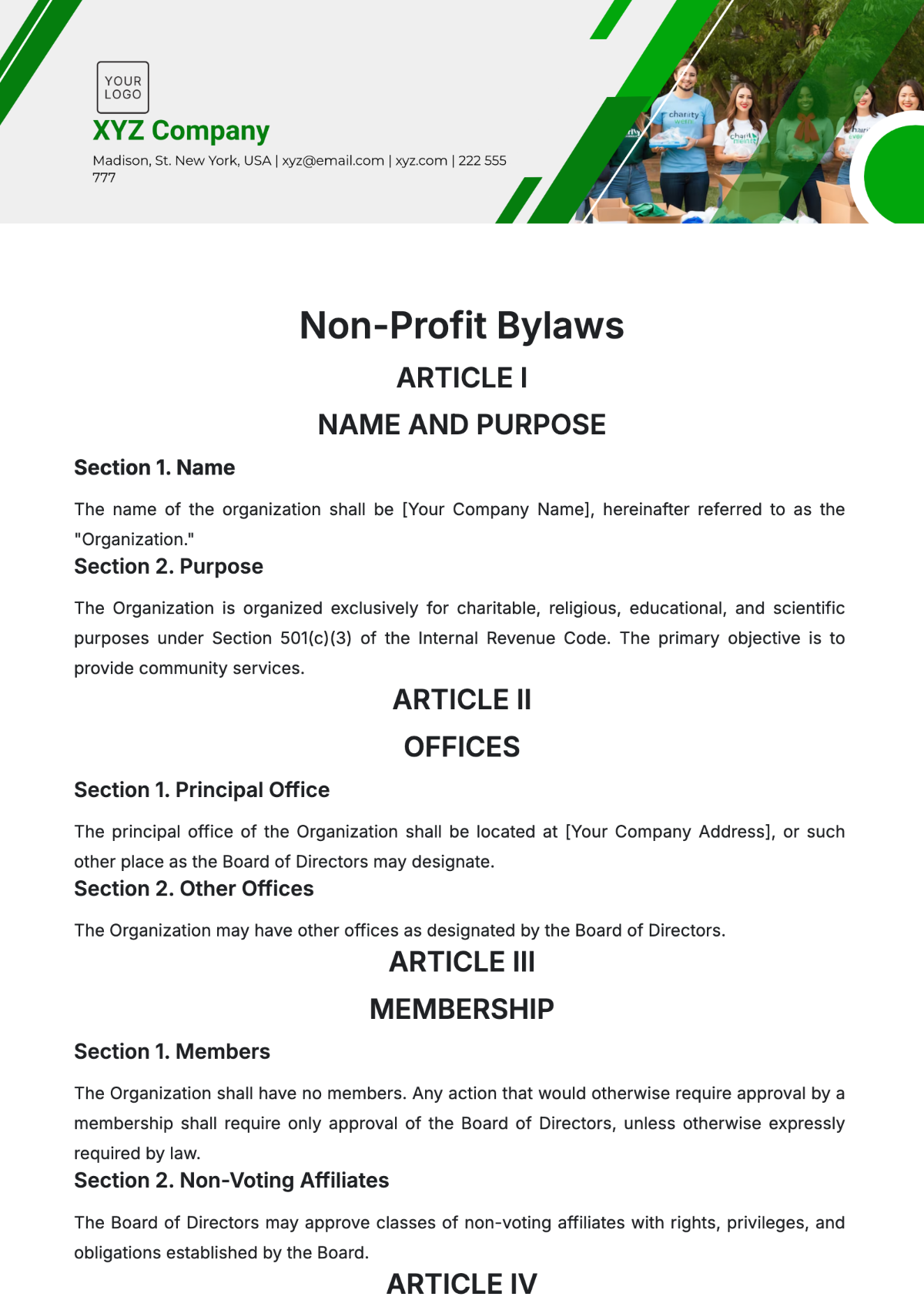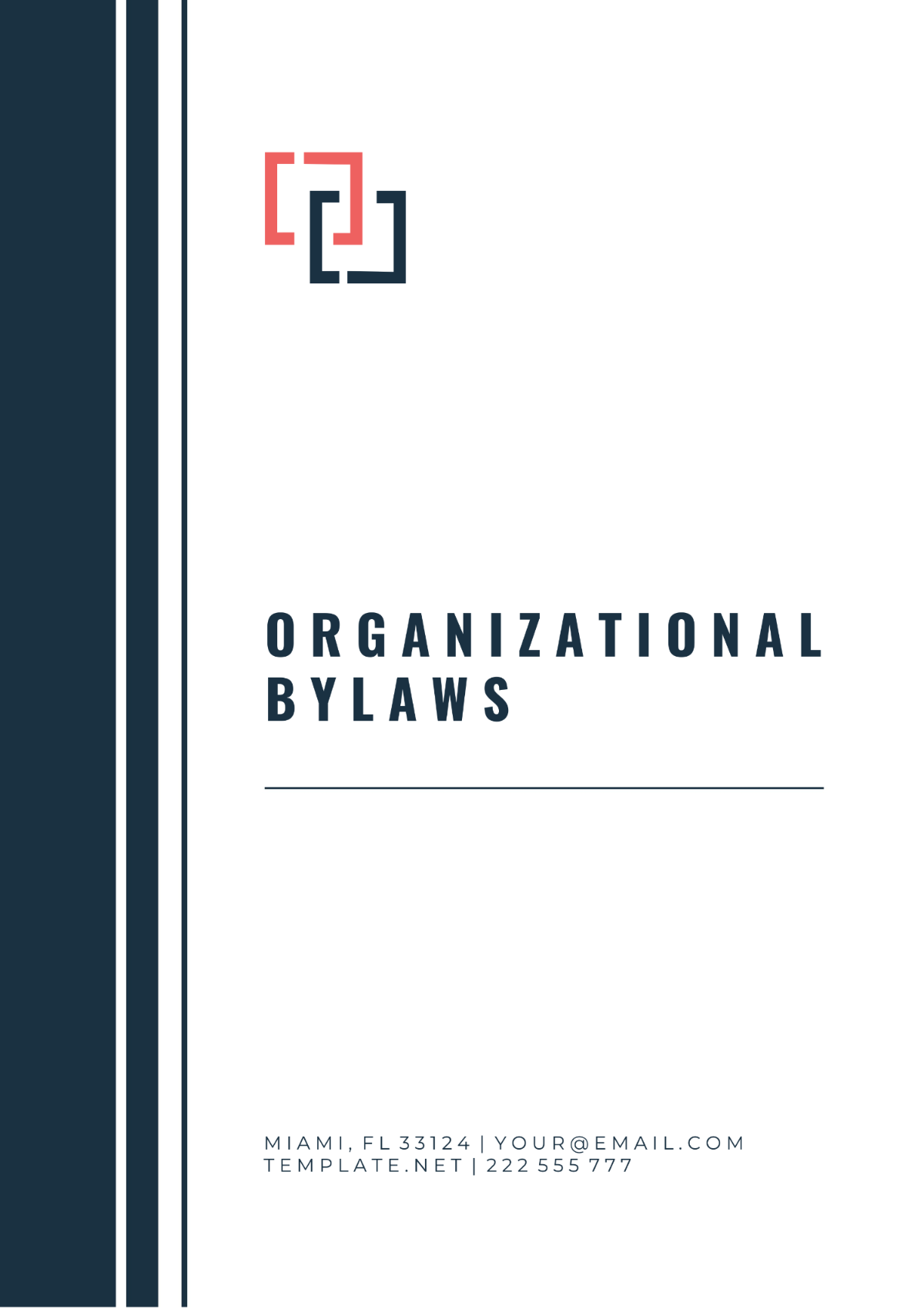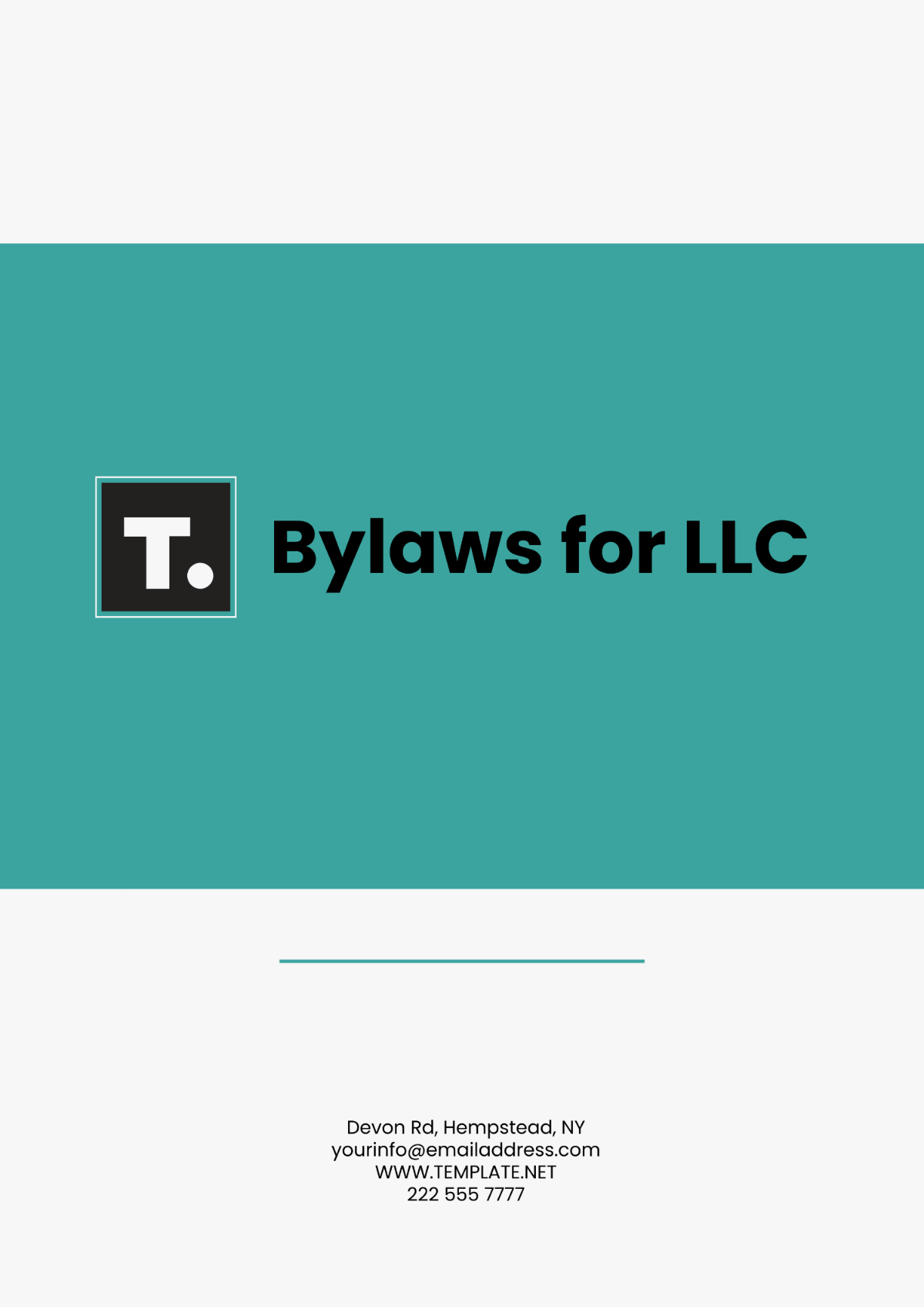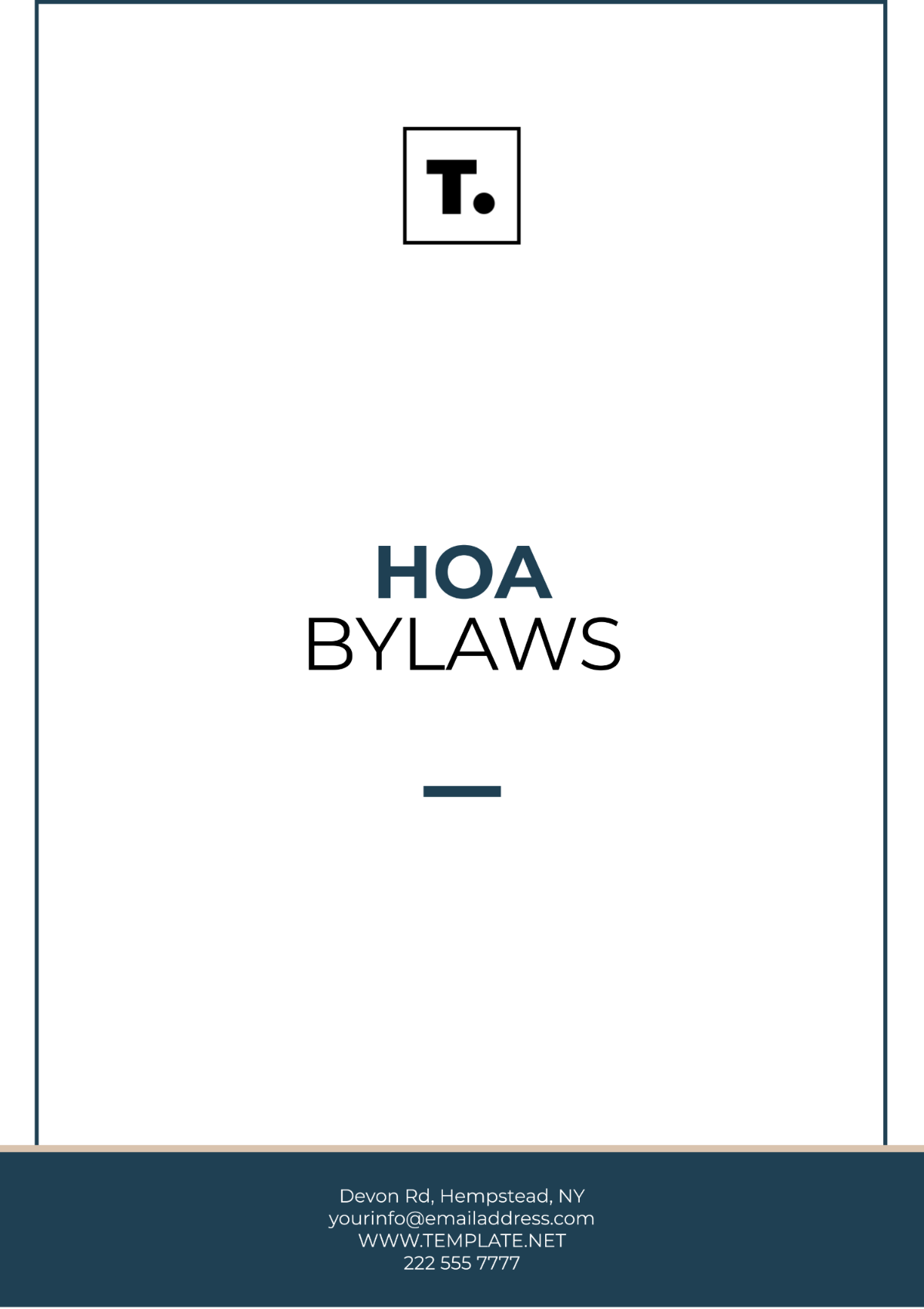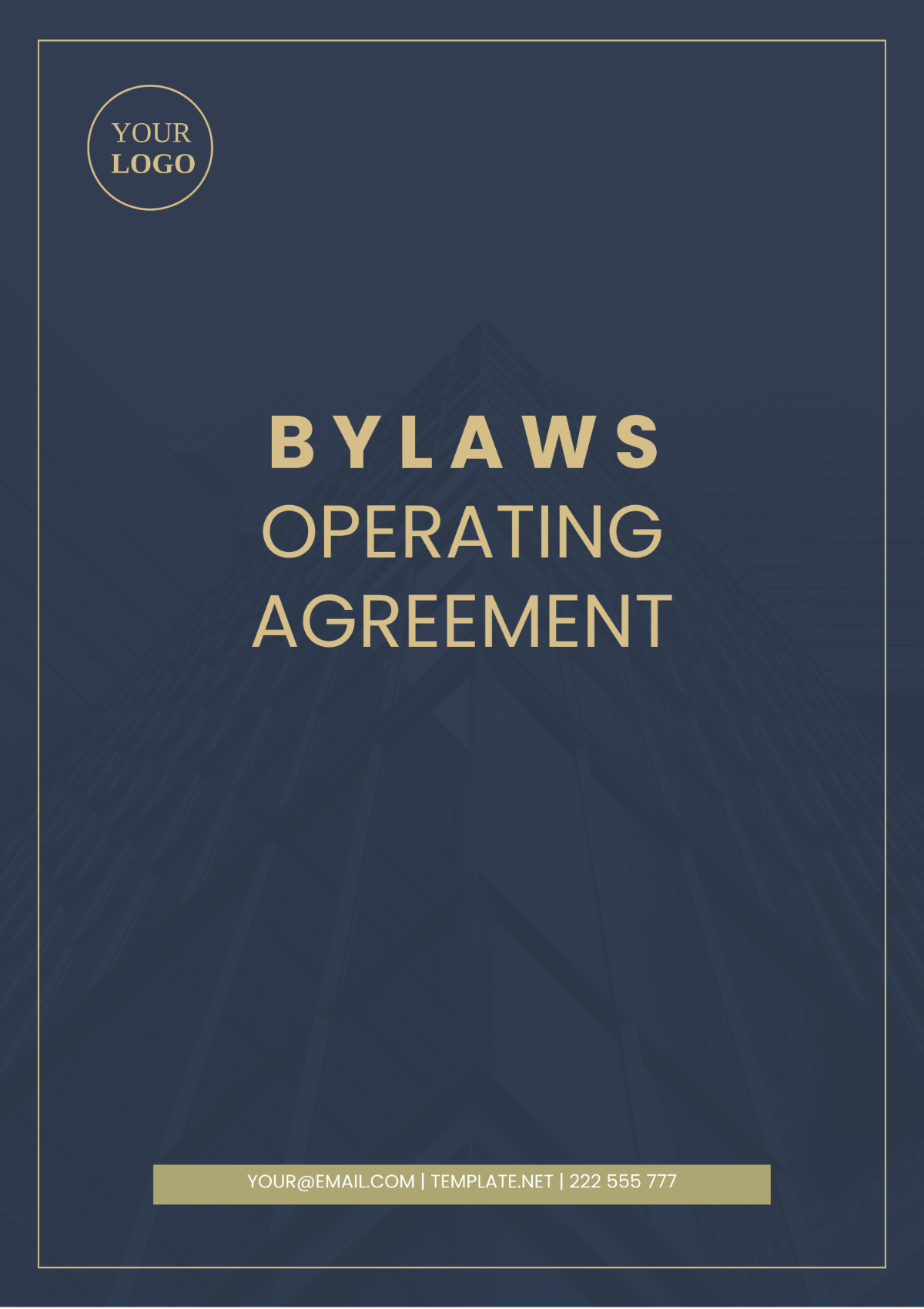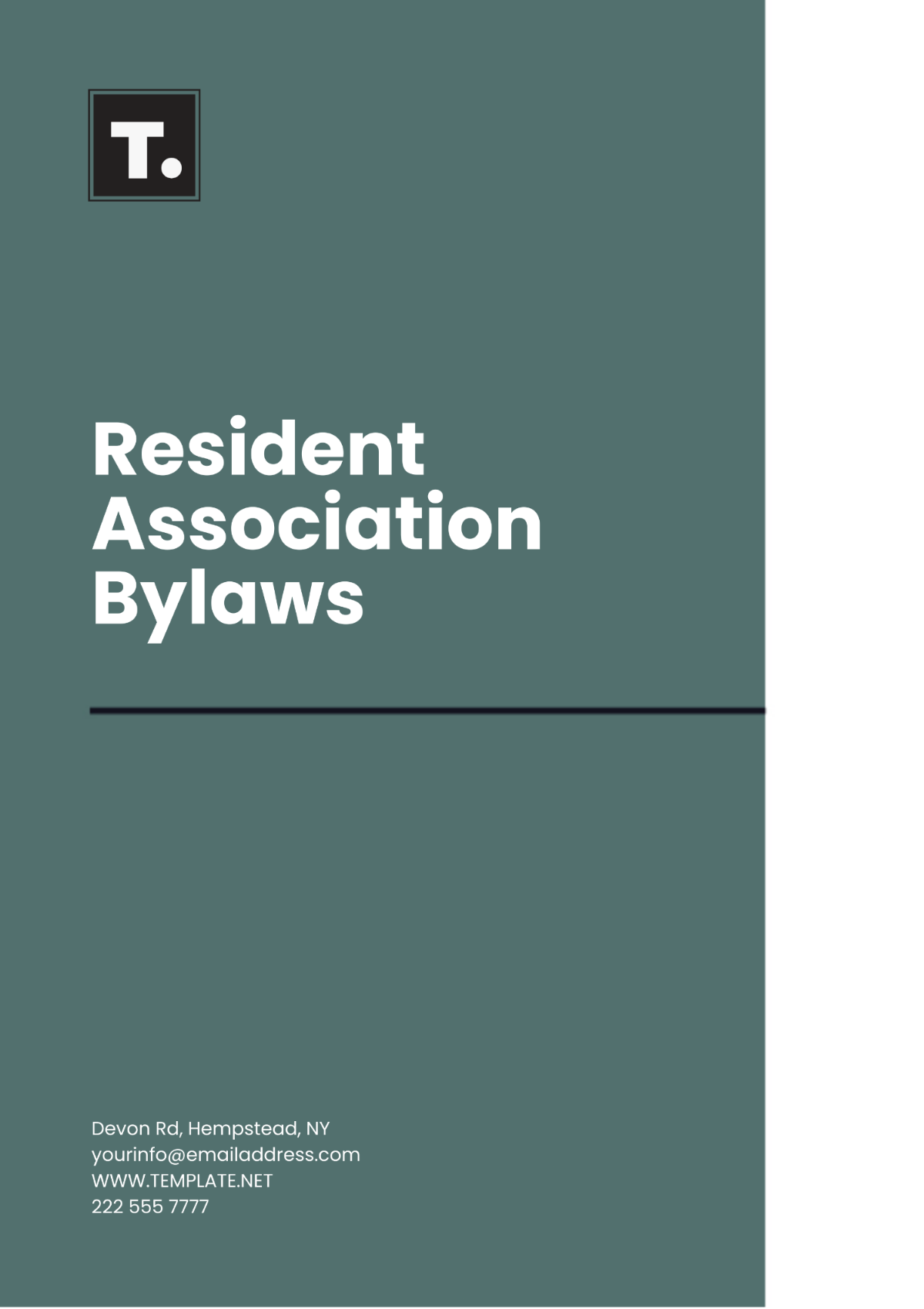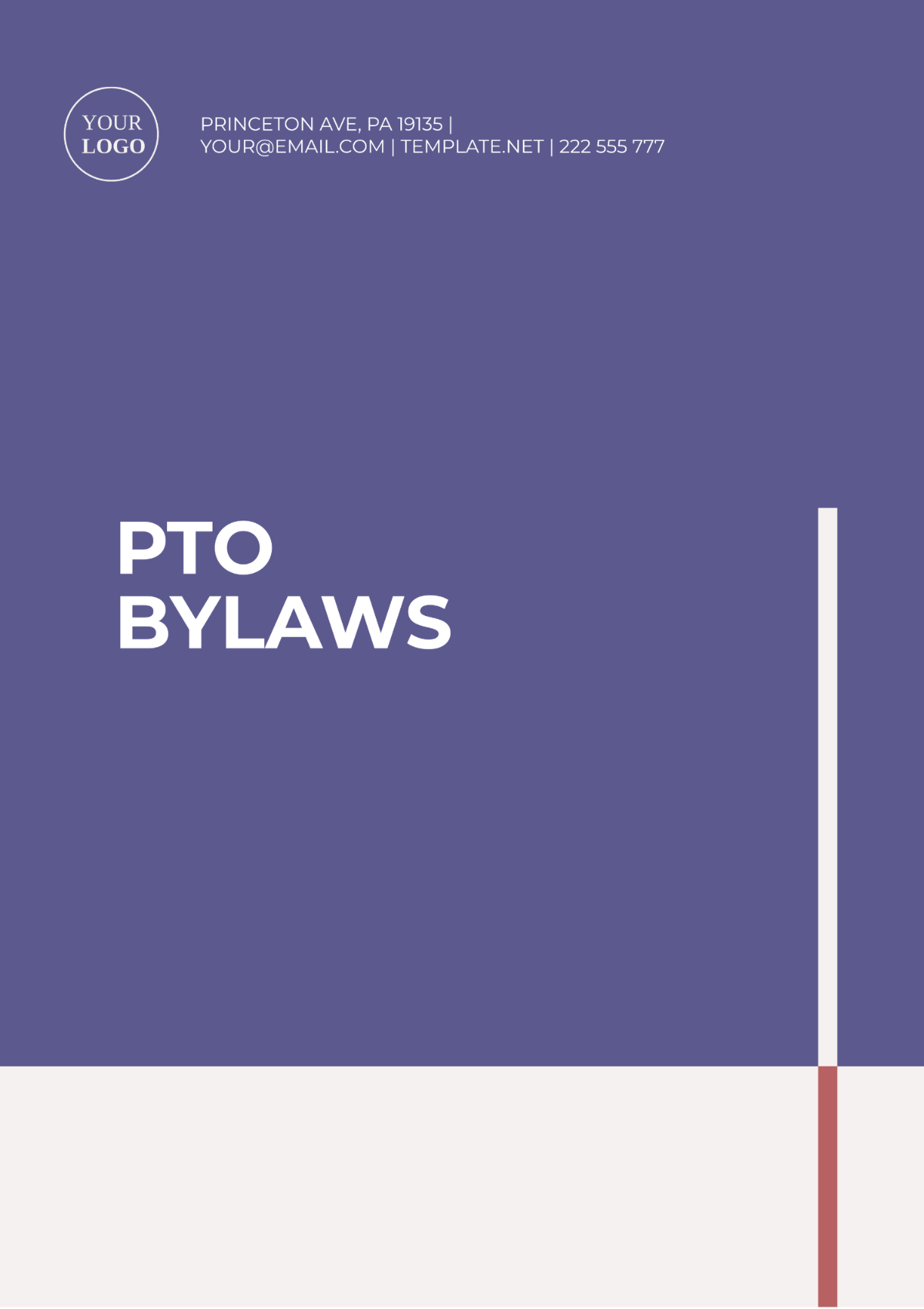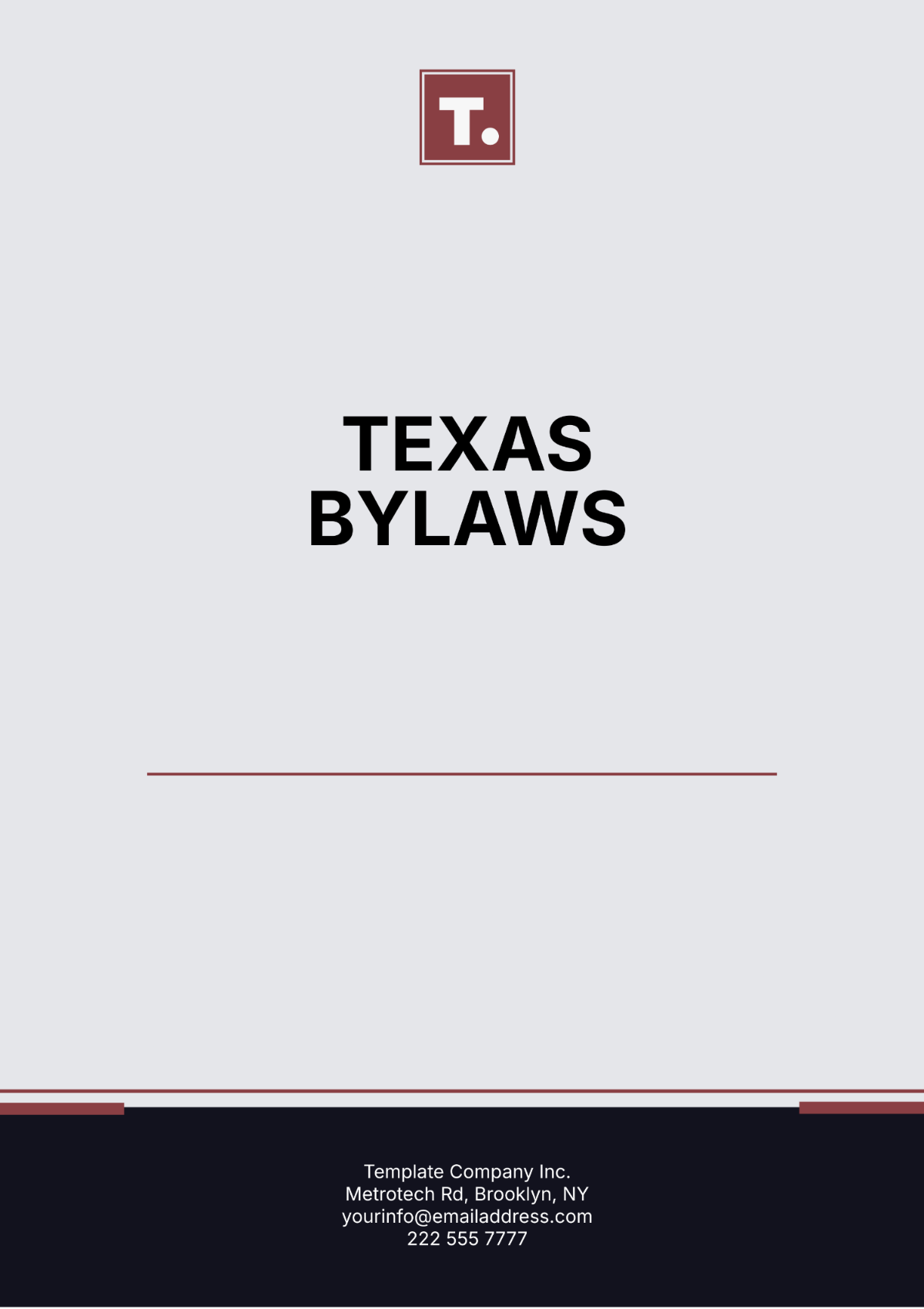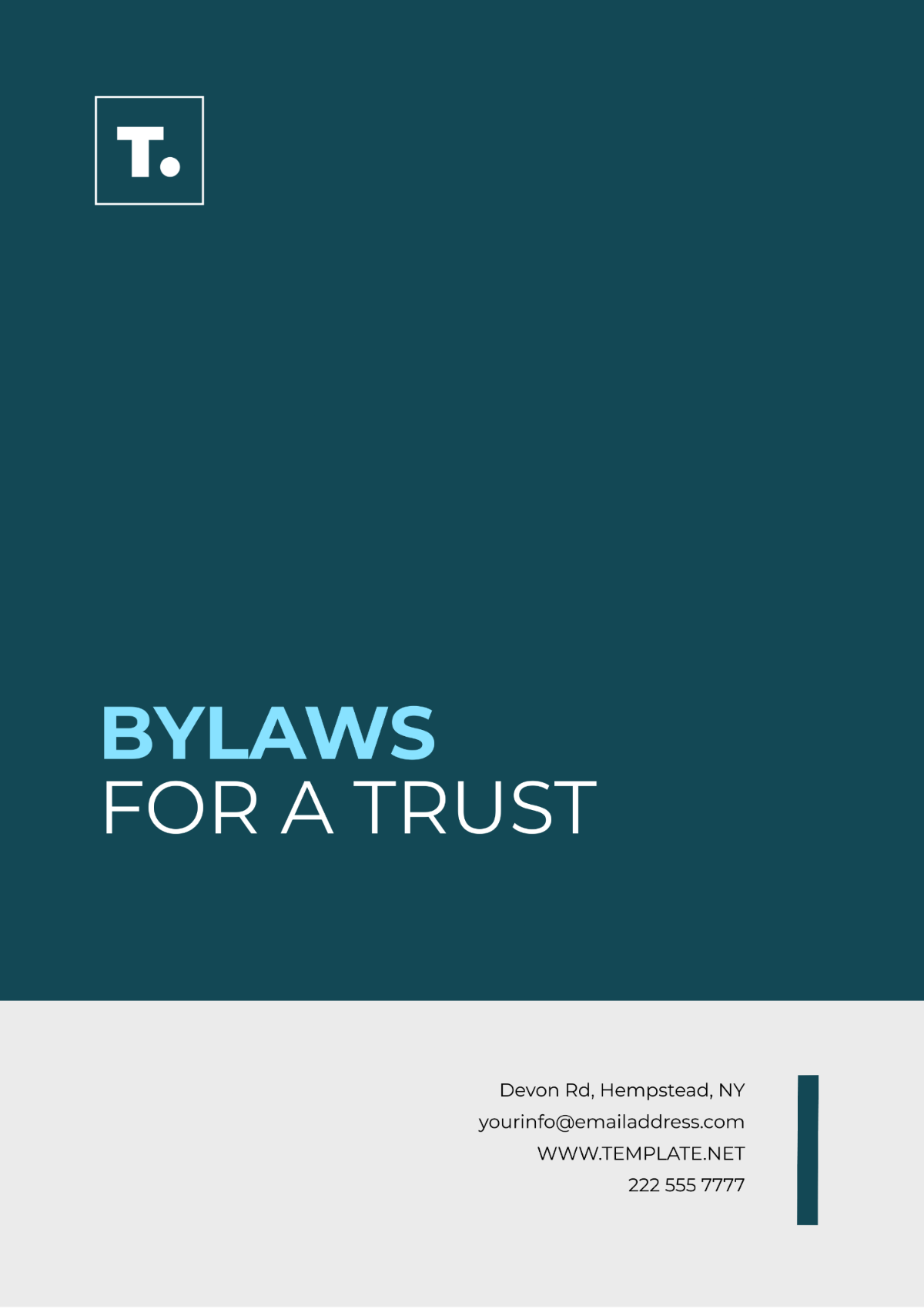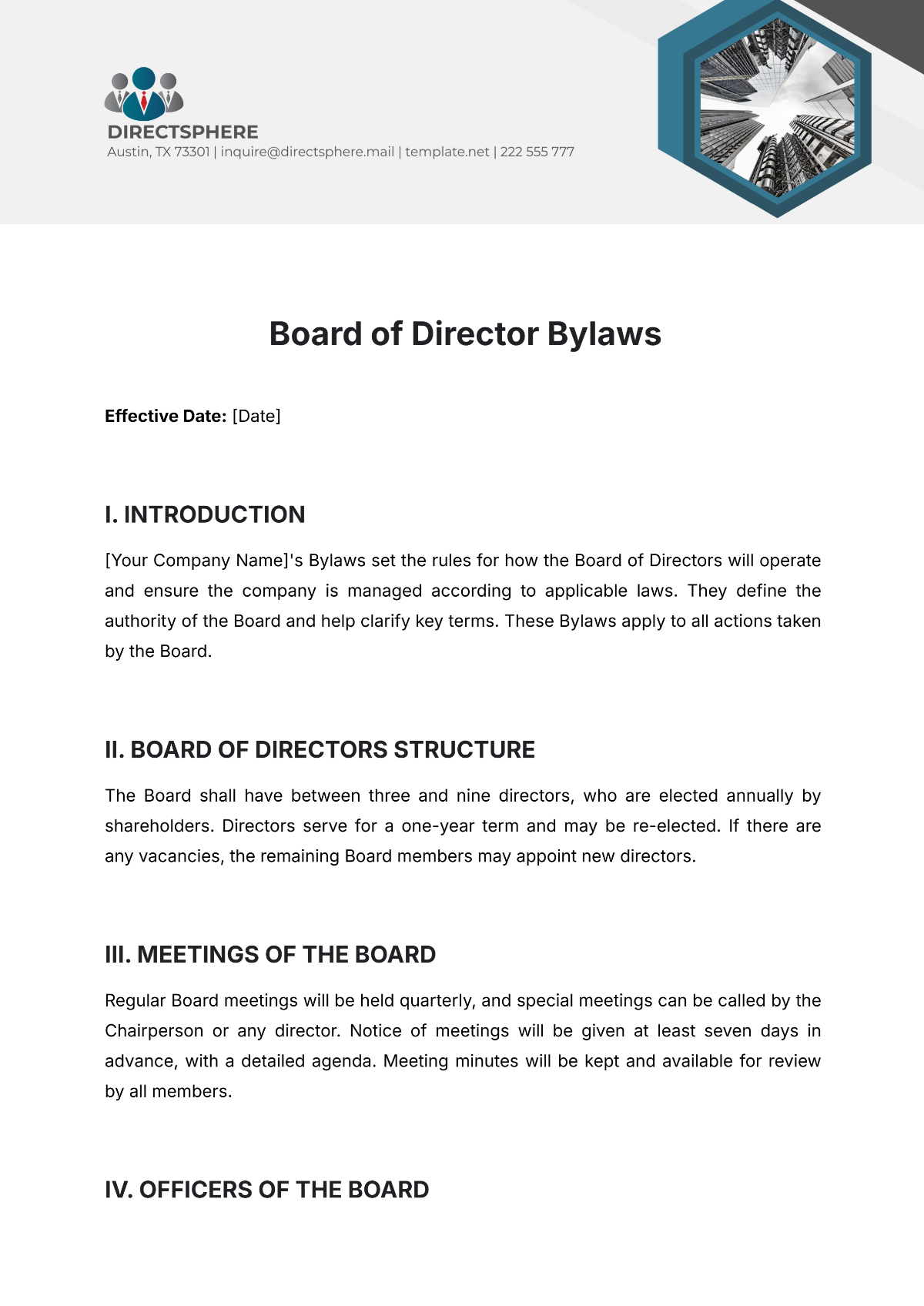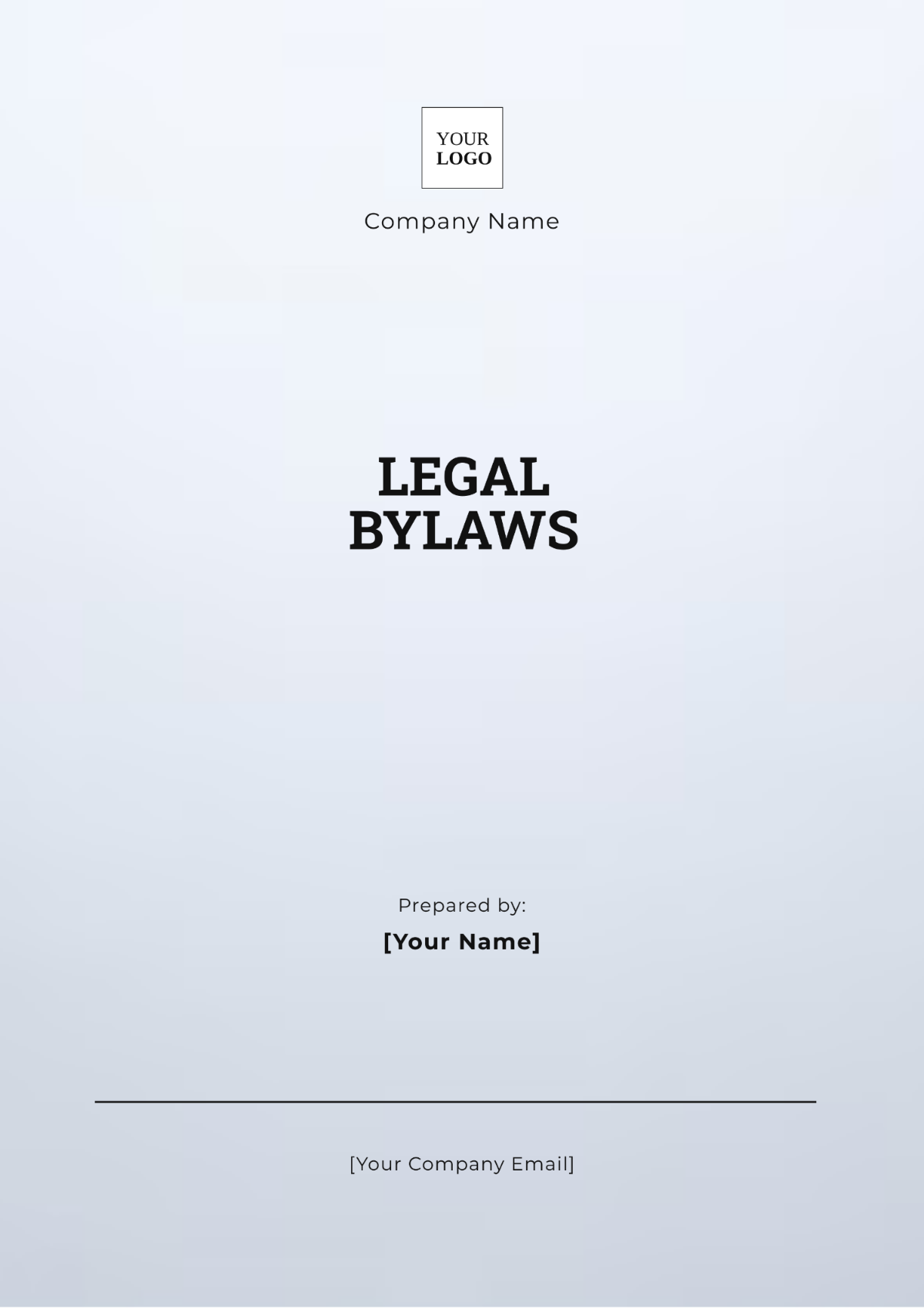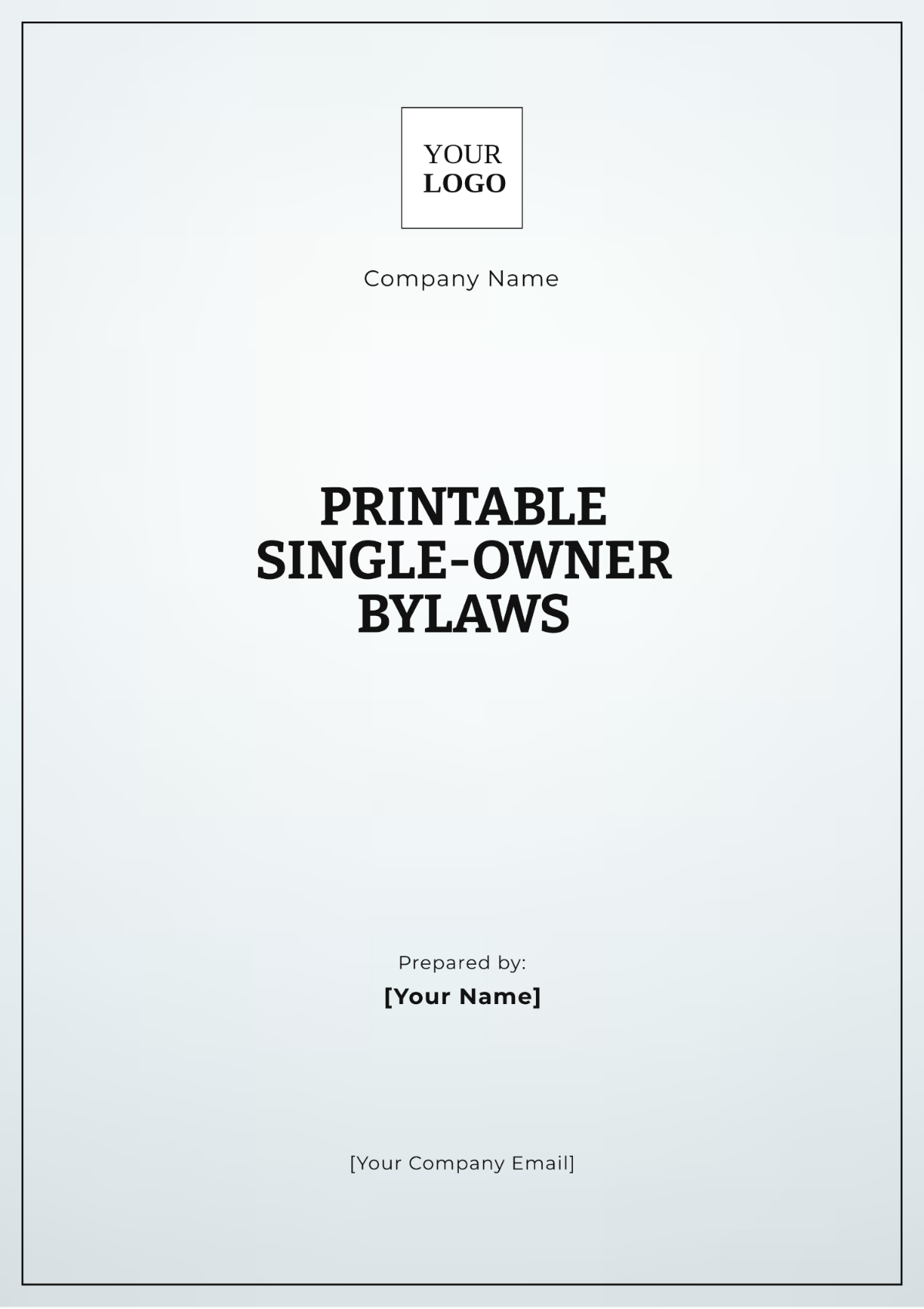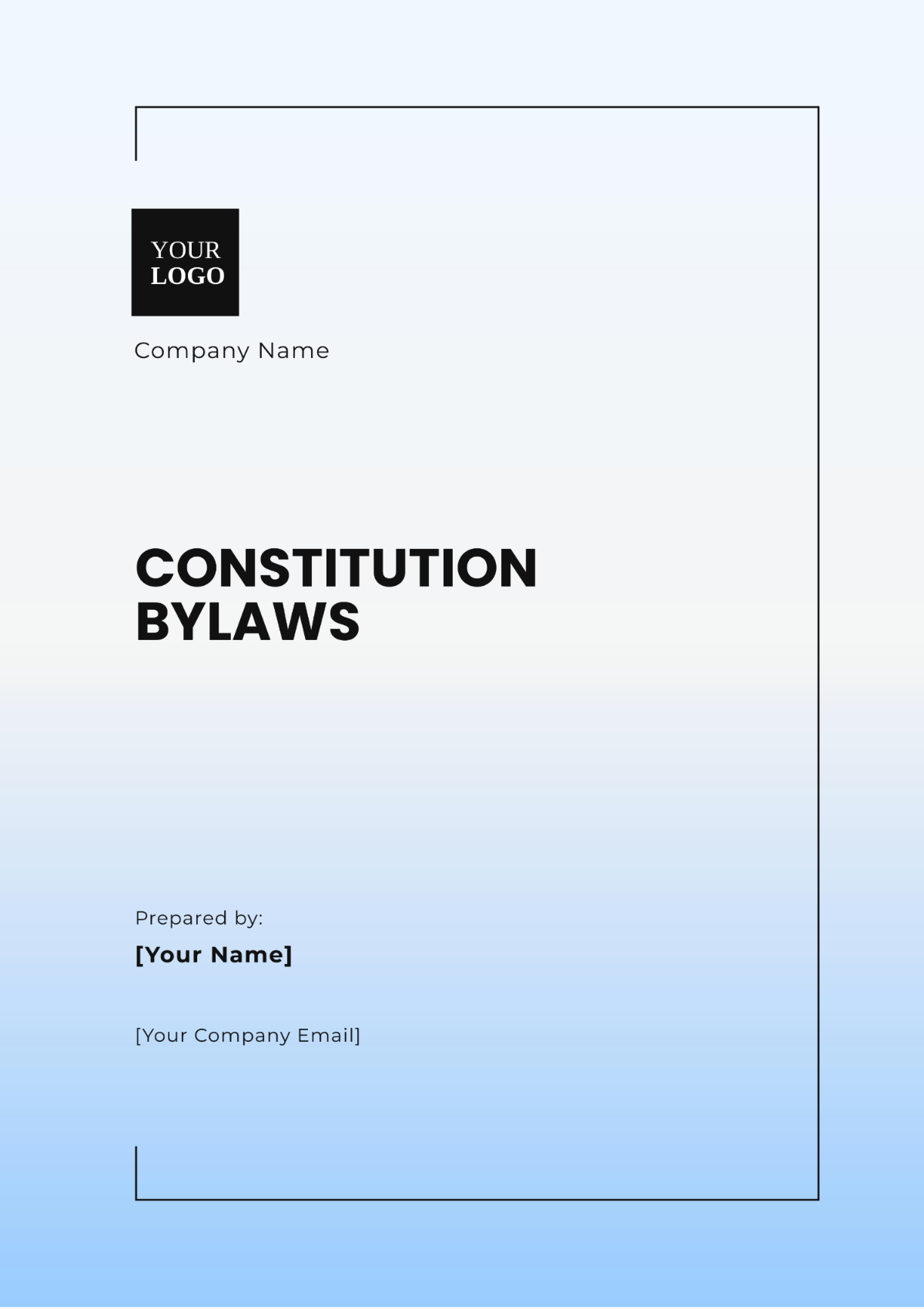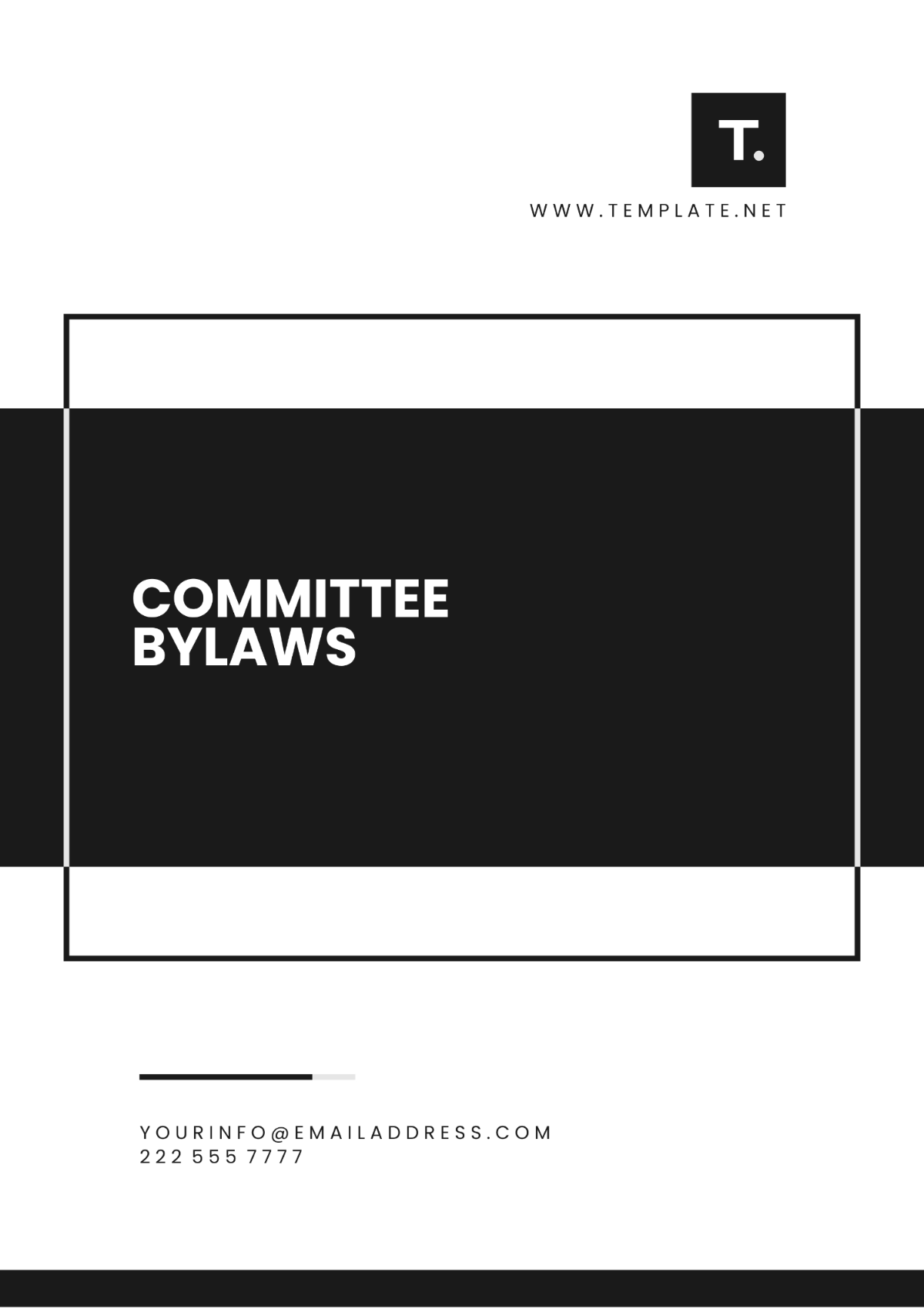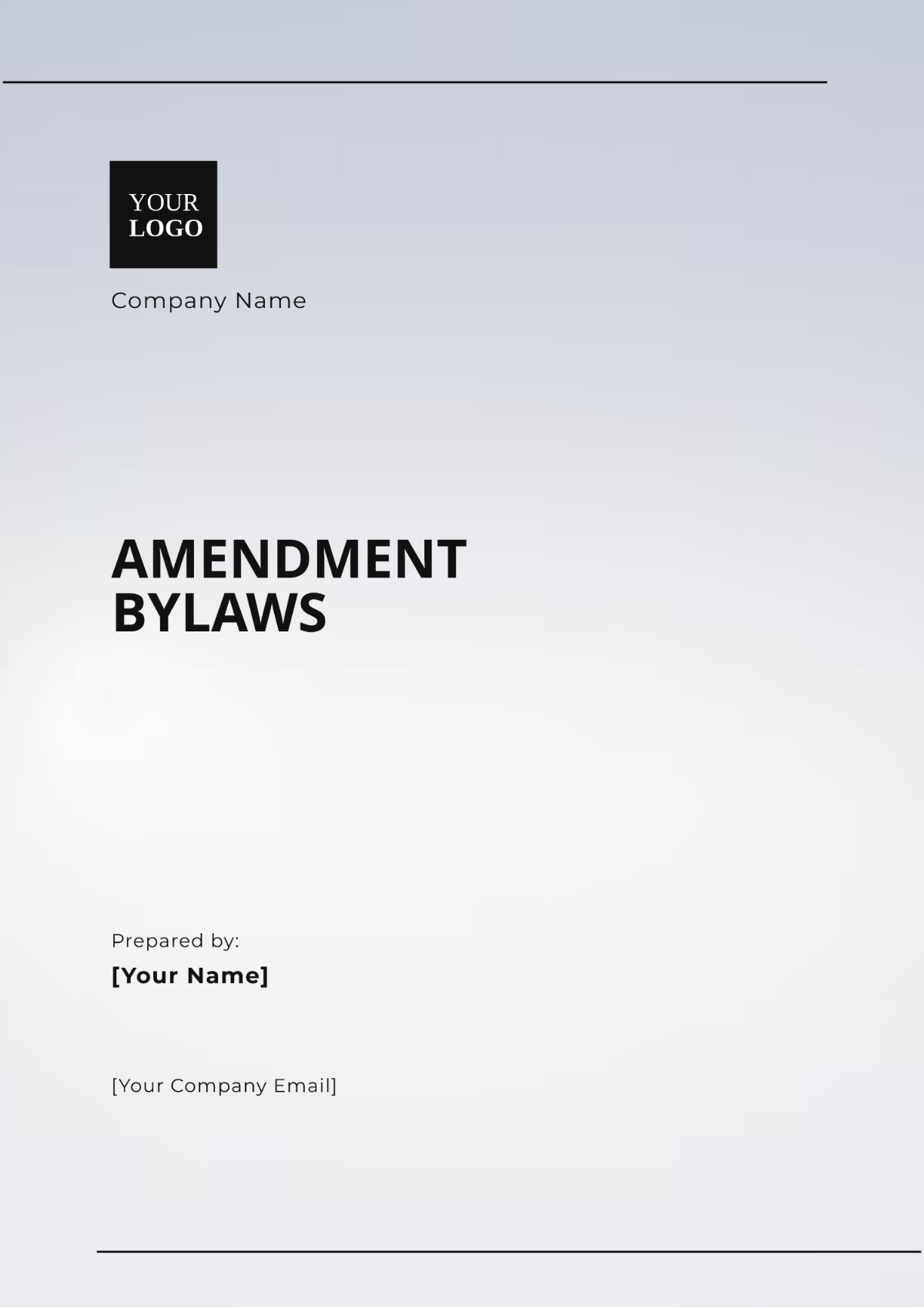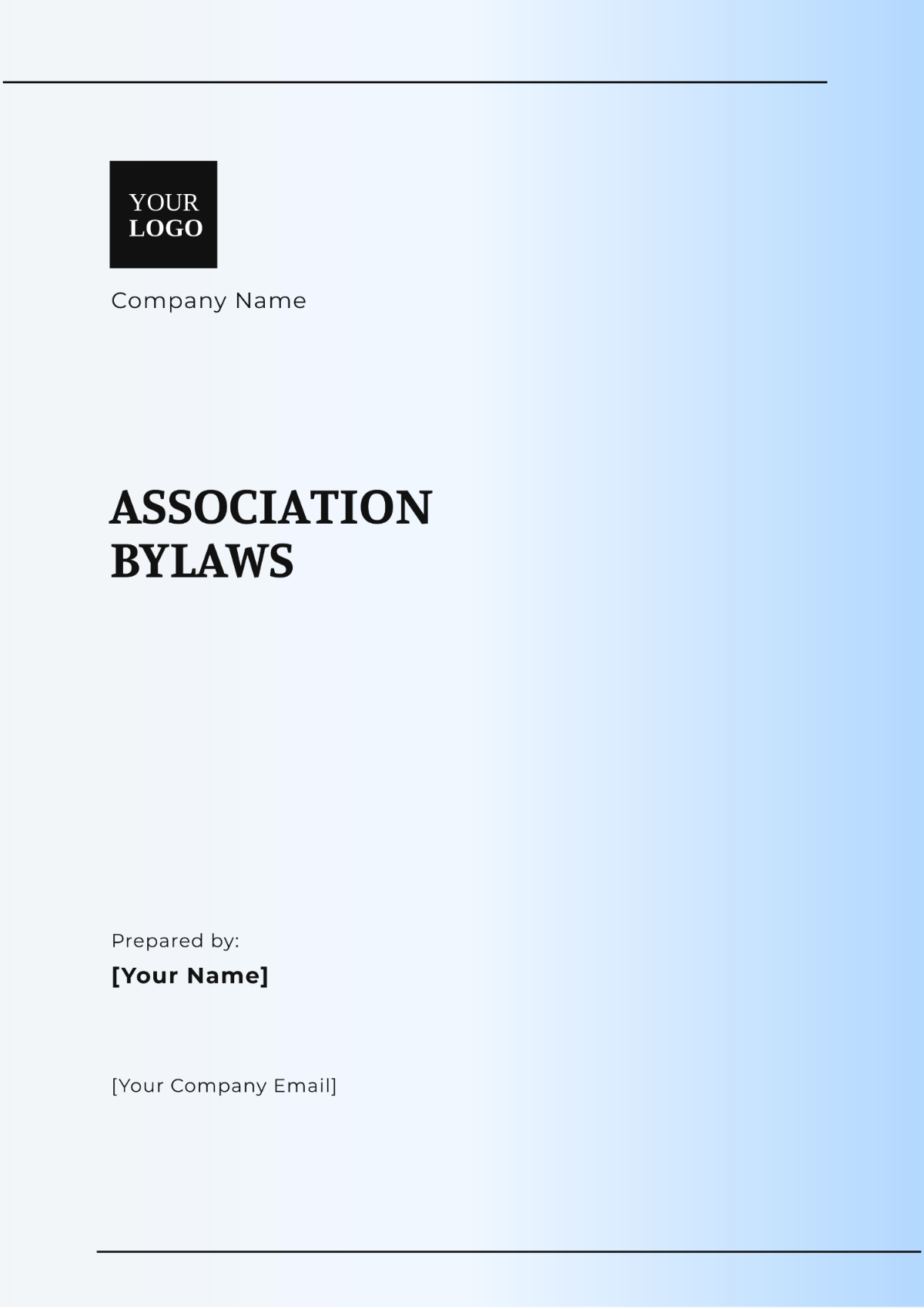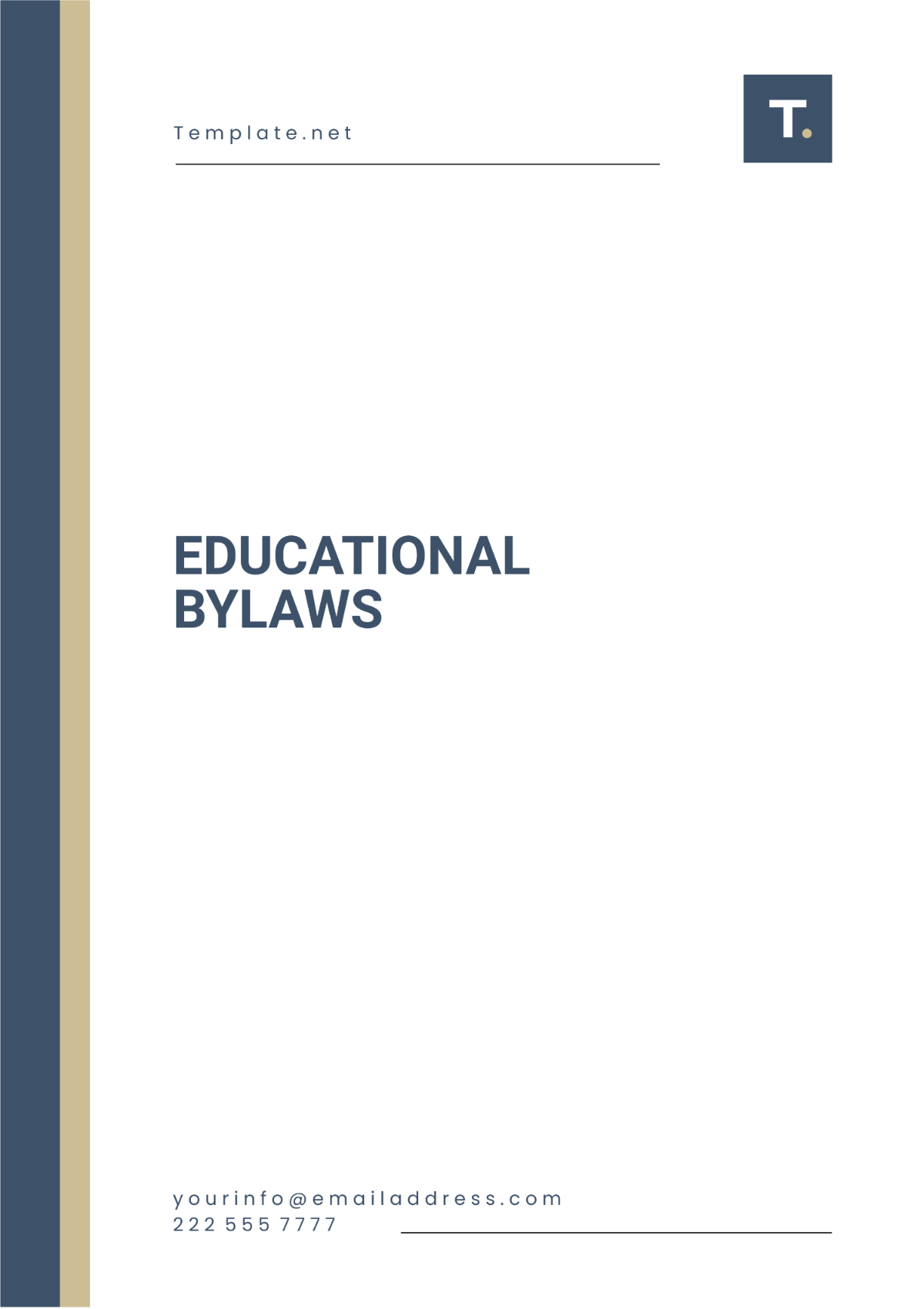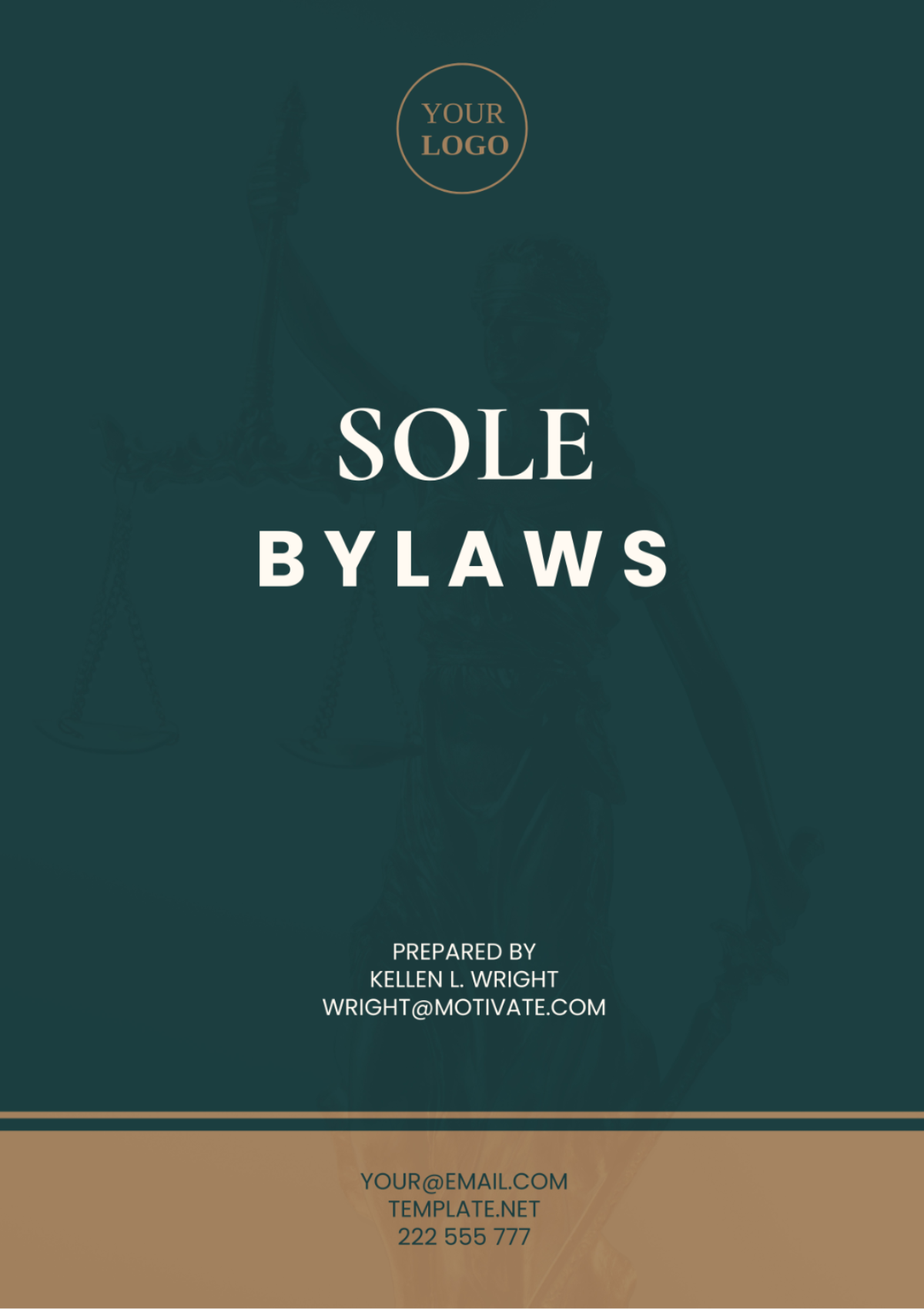Texas Bylaws
Article I: Name and Purpose
1.1 Name: [Your Company Name], hereafter referred to as "the Organization."
1.2 Purpose: These Bylaws establish clear guidelines for internal operations, management, and decision-making in compliance with Texas laws. They promote transparency, efficiency, member protection, and continual improvement.
Article II: Membership
2.1 Eligibility Criteria: Membership in [Your Company Name] is open to individuals and entities that meet the specific eligibility criteria outlined in the Membership Policy, ensuring alignment with [Your Company Name]'s mission and objectives.
2.2 Rights and Responsibilities: Upon becoming members, individuals and entities are entitled to certain rights and are expected to fulfill corresponding responsibilities as defined in these Bylaws and any supplementary policies approved by the governing body.
2.3 Termination and Suspension Procedures: In cases where members fail to uphold their responsibilities or breach organizational policies, membership in [Your Company Name] may be subject to termination or suspension. The procedures for such actions are detailed in these Bylaws, ensuring fairness and due process for all parties involved.
Article III: Governance Structure
3.1 Board of Directors
The Board of Directors of [Your Company Name] is vested with the authority and responsibility for overseeing the affairs of the organization. This includes strategic planning, financial management, policy development, and ensuring compliance with legal and regulatory requirements.
3.2 Officers
President: The President of [Your Company Name] holds a leadership role, presiding over meetings, providing strategic direction, and representing the organization externally.
Vice President: The Vice President supports the President and assumes leadership duties in their absence, contributing to decision-making and organizational initiatives.
Secretary: The Secretary maintains accurate records of meetings, handles correspondence, and ensures compliance with procedural requirements outlined in these Bylaws.
Treasurer: The Treasurer oversees financial matters, including budgeting, financial reporting, and fiscal accountability, ensuring transparency and sound financial management.
3.3 Committees
[Your Company Name] may establish committees to address specific areas of interest or concern, fostering collaboration, expertise, and efficiency in achieving organizational objectives.
3.4 General Membership
Members of [Your Company Name] play a vital role in the governance structure, actively participating in decision-making processes, contributing to organizational initiatives, and upholding the values and principles of the organization.
Article IV: Meetings and Procedures
4.1 Meeting Schedule
Regular and special meetings of the Board of Directors and general membership shall be conducted according to a schedule determined by the Board, ensuring regular communication and decision-making.
4.2 Meeting Procedures
Agendas: Meetings shall follow established procedures, including the creation and distribution of agendas outlining topics for discussion and action items.
Minutes: Accurate minutes shall be kept for all meetings, documenting discussions, decisions, and action items taken during the meeting.
Quorum Requirements: Meetings shall require a quorum, as defined in these Bylaws, to conduct official business and make decisions.
Voting Protocols: Voting during meetings shall adhere to specified protocols outlined in these Bylaws, ensuring fairness, transparency, and accuracy in decision-making processes.
4.3 Elections for Board Positions
Annual Elections: Elections for Board positions shall be held annually, providing opportunities for leadership rotation and ensuring continuity within the organization.
Nomination Procedures: Procedures for nomination, including eligibility criteria and submission deadlines, shall be outlined in these Bylaws to facilitate a fair and inclusive election process.
Voting Procedures: Voting procedures, including methods of voting, counting, and announcing results, shall be clearly defined in these Bylaws to uphold the integrity and transparency of the election process.
Article V: Financial Matters
5.1 Financial Records and Budgeting
Record Maintenance: [Your Company Name] shall maintain accurate financial records, ensuring transparency and accountability in all financial transactions.
Budget Approval: The organization shall operate within a budget approved by the Board, promoting responsible financial management and alignment with organizational goals.
5.2 Financial Management
Fundraising: Financial matters, including fundraising activities, shall be conducted transparently and in compliance with applicable laws, regulations, and ethical standards.
Budgeting: The budgeting process shall involve careful planning, allocation of resources, and monitoring of expenditures to support the organization's mission and objectives.
Expenditure Management: Expenditures shall be managed prudently, with expenditures authorized according to approved budgets and organizational priorities.
5.3 Financial Reporting and Audits
Reporting: The Treasurer shall present regular financial reports to the Board, providing updates on financial performance, budget status, and any significant financial matters requiring attention.
Audits: Financial audits shall be conducted as required by law or at the discretion of the Board to ensure accuracy, compliance, and financial integrity. The Treasurer shall oversee the audit process and facilitate cooperation with auditors to address any findings or recommendations.
Article VI: Committees and Responsibilities
6.1 Establishment of Committees
Board Authority: The Board of [Your Company Name] is authorized to establish committees to address specific areas of interest or concern within the organization, enhancing operational efficiency and fostering expertise in key areas.
Types of Committees: Committees may include standing committees, ad hoc committees, and task forces, each serving distinct purposes and responsibilities as outlined in these Bylaws.
6.2 Appointment and Responsibilities
Committee Members: Committee members shall be appointed or elected under procedures outlined in these Bylaws, ensuring diverse representation and expertise within committees.
Reporting: Committee members shall report to the Board on their activities, progress, and recommendations, providing regular updates and insights to support informed decision-making.
6.3 Types of Committees
Standing Committees: These committees have ongoing responsibilities and focus areas, such as finance, governance, membership, and strategic planning.
Ad Hoc Committees: Ad hoc committees are formed for specific short-term purposes, such as event planning, policy review, or special projects, and are disbanded once their objectives are met.
Task Forces: Task forces are temporary groups assembled to address specific issues or challenges, often involving cross-functional collaboration and expertise to achieve targeted outcomes.
Article VII: Amendments and Ratification
7.1 Amendment Process: These Bylaws may be amended by a vote of the membership, following procedures outlined in these Bylaws. Any proposed amendments shall be submitted in writing to the Board and distributed to members for review and discussion before a vote is conducted.
7.2 Board Review: The Board shall review and consider proposed amendments, ensuring they are in alignment with the organization's mission, goals, and legal requirements.
7.3 Membership Vote: Amendments shall become effective upon ratification by a majority vote of the membership, reflecting the collective decision-making process and ensuring transparency and inclusivity in governance matters.
Article VIII: Miscellaneous
8.1 Superseding Previous Bylaws: These Bylaws supersede any previous Bylaws of [Your Company Name] and shall remain in effect until amended or repealed under the procedures outlined herein.
8.2 Matters Not Covered: Any matters not specifically addressed by these Bylaws shall be resolved by the Board of [Your Company Name] under applicable laws, regulations, and best practices, ensuring comprehensive governance and adherence to legal requirements.

